Erin’s Stage 3 Multiple Myeloma Story
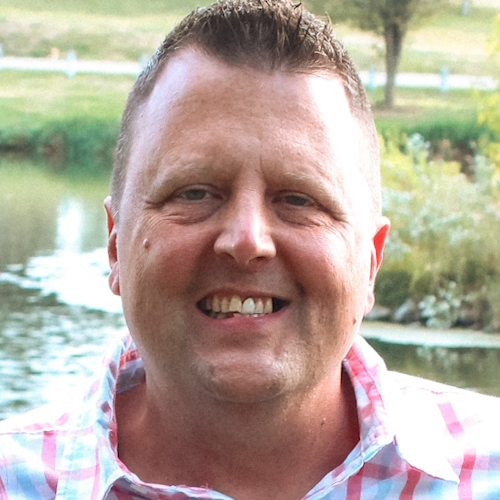
Erin was diagnosed with multiple myeloma after experiencing back pains that got progressively worse.
Initially dismissing the pain and thinking it was related to aging, he didn’t let it stop him from doing anything. Several months later, it got so bad that he collapsed to the floor after a sneeze.
When an X-ray didn’t show anything notable, he was given muscle relaxers and when those didn’t work, he was then sent to a physical therapist and a chiropractor.
Already in too much pain, he was urged by his chiropractor to ask his doctor for an MRI. They found six compression fractures in his spine and learned he probably had multiple myeloma.
He shares how he did everything he was told to do, avoided using Google, how much support he got from his family and employers, and the connection he shared with his multiple myeloma specialist.
In addition to Erin’s narrative, The Patient Story offers a diverse collection of multiple myeloma stories. These empowering stories provide real-life experiences, valuable insights, and perspectives on symptoms, diagnosis, and treatment options for cancer.
This interview has been edited for clarity and length. This is not medical advice. Please consult with your healthcare provider to make informed treatment decisions.
The views and opinions expressed in this interview do not necessarily reflect those of The Patient Story.
- Name: Erin H.
- Diagnosis:
- Multiple Myeloma
- Staging: 3
- Initial Symptoms:
- Lower back pain
- Weakness
- Treatment:
- Chemotherapy
- Stem cell transplant
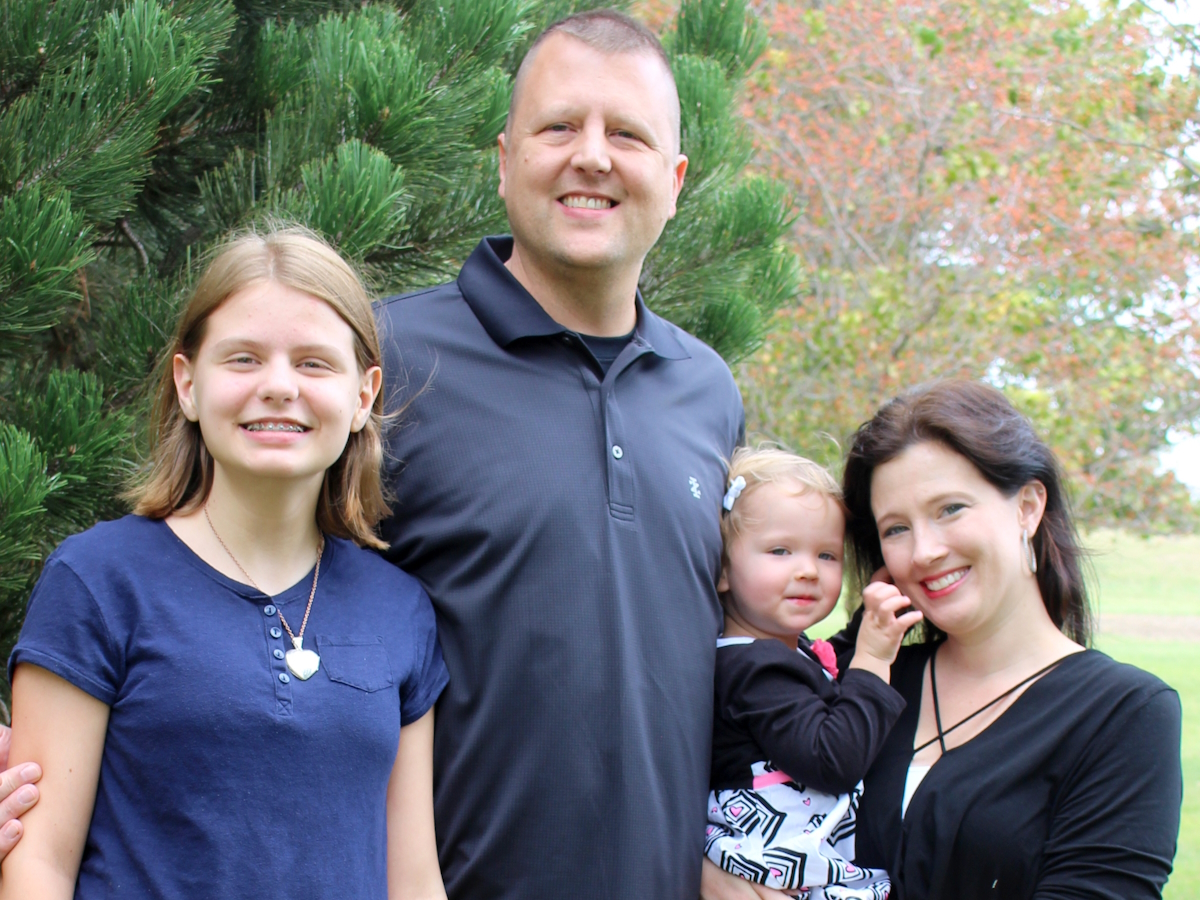


Introduction
I live in David City, Nebraska, a small town [of] about 2,900 people.
I have a beautiful wife, Melissa, [who] works with me. We have two daughters. Ainsley got a full ride to the University of Nebraska. She wants to be a scientist. Addison constantly keeps us laughing and having fun.
I’ve been a big vinyl record collector for about 30 years. I probably have a thousand or so records in my collection. It’s overtaken our house a little bit, but it’s what I like.
I work a lot. I run an Ace Hardware store. I love my work. Before I had cancer, I was involved in a lot of committees and boards. My mindset really changed afterward. Now, if it doesn’t involve my family or work, I don’t really have time for it. I pretty much just spend time with my wife and kids.
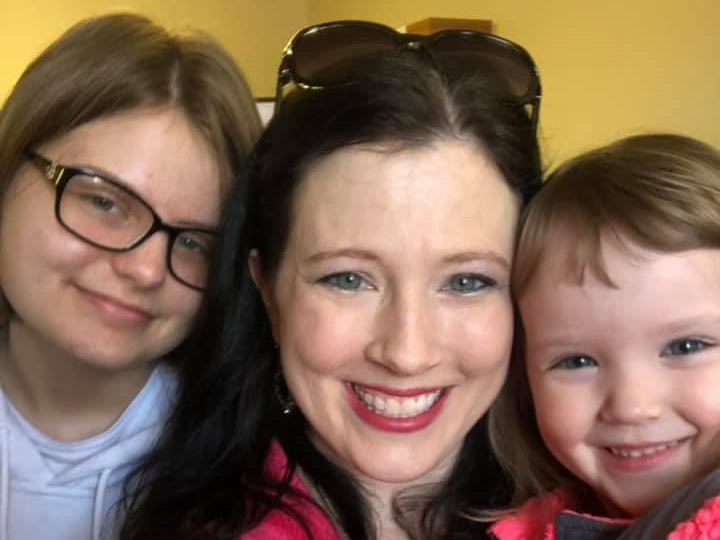
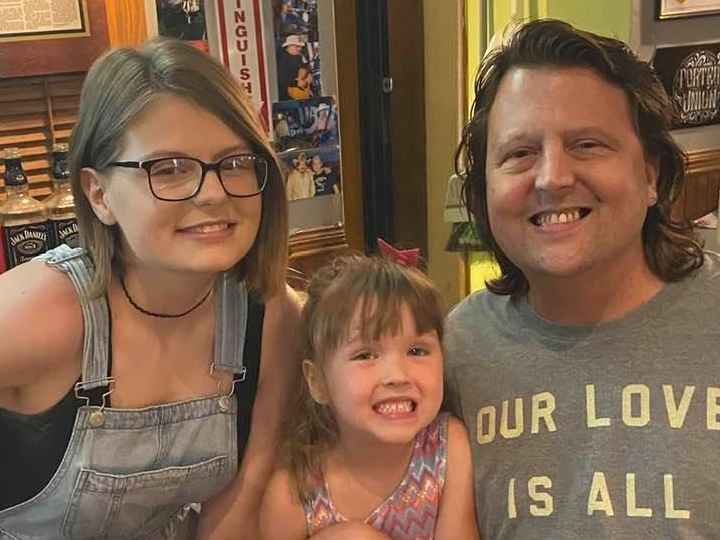
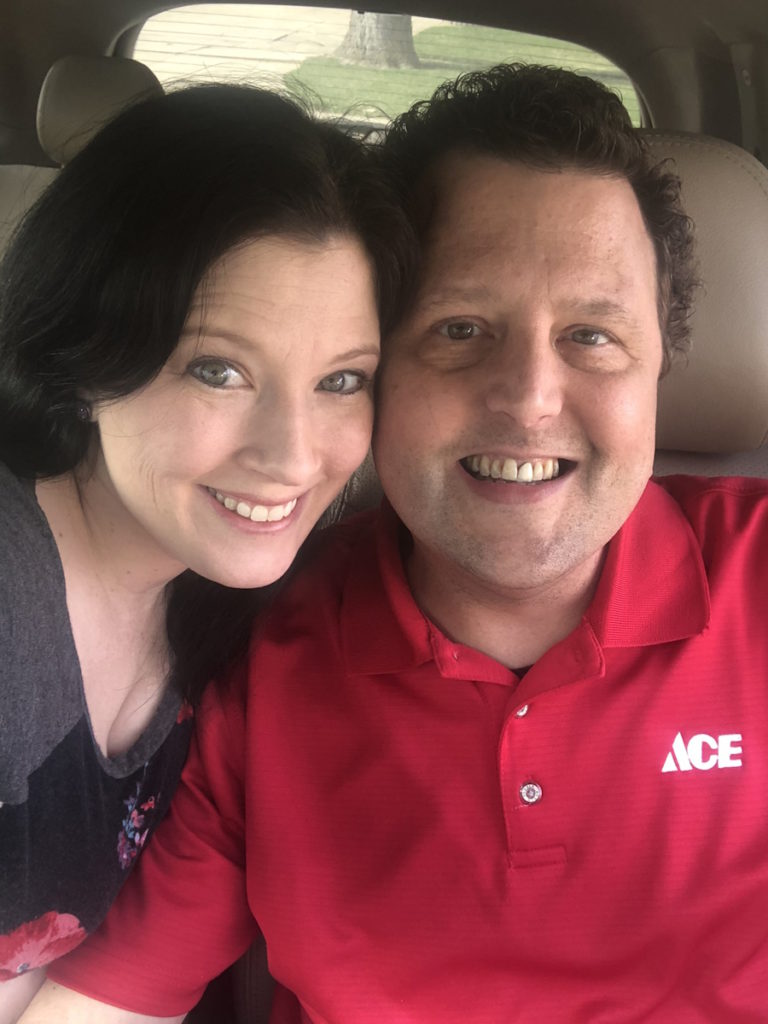
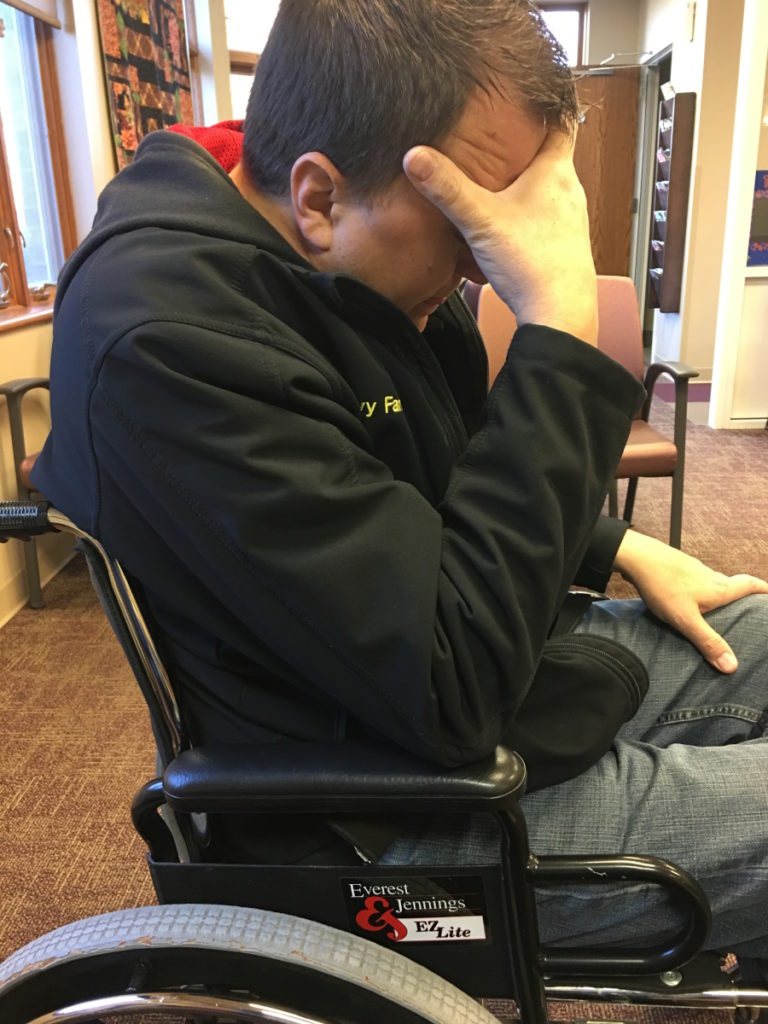
Pre-diagnosis
Initial symptoms
My back hurt. I thought, I’m getting old. Then it got progressively worse to the point [where] I was walking around bent over with a cane. I’m stubborn [so] it didn’t stop me from doing anything, but I was moving really slow and in a lot of pain. My wife said, “You need to go to the doctor.”
I put up with it for several months. I was taking handfuls of Aleve for it. I would later find out that was the worst thing for my failing kidneys. You can’t take it with kidney problems so I was not doing myself any favors there, but I didn’t know there was anything wrong with my kidneys.
One morning, [as] I was getting dressed for work, I sneezed and collapsed to the floor. My back gave out completely [and] I couldn’t get up.
Melissa helped me get on the bed. I lay there for a while and tried standing up again. It felt like I had my strength back. I felt like I was okay.
I went to work, sat down in my chair, and started doing work. I tried to get out of the chair and I couldn’t. I couldn’t put anything on my feet. I had nothing.
Melissa picked me up. They wheeled me out to her car in my office chair because I couldn’t walk.
We went to the doctor. My primary care physician wasn’t available so we saw the first guy we could. He did an X-ray of my back, didn’t see anything, looked at me, said nothing was wrong, gave me some muscle relaxers, and sent me on my way.
Trying to alleviate the back pain
The pain didn’t go away. Nothing helped. A week or two went by and I made an appointment with my primary doctor, Dr. Daro. He sent me to physical therapy. I kept going [back] because physical therapy did nothing. We tried dry needling; that didn’t do anything.
He sent me to a chiropractor. The third time I went in, I could hardly walk. The chiropractor, God bless him, said, “I’m not going to touch you. You are in too much pain. I’m afraid I’m going to hurt you. You should tell your doctor you need an MRI and have them really push for an MRI.”
Getting an MRI of the back
I called the clinic and said, “I’m coming in right now. I want to see my primary. I need an MRI.” I saw him and he agreed at this point.
It took a day or two to get the MRI approved by the insurance company. We had to drive about an hour away.
The next day, my doctor called and said, “There’s something here. I want you to come in tomorrow and we’ll talk about it.”
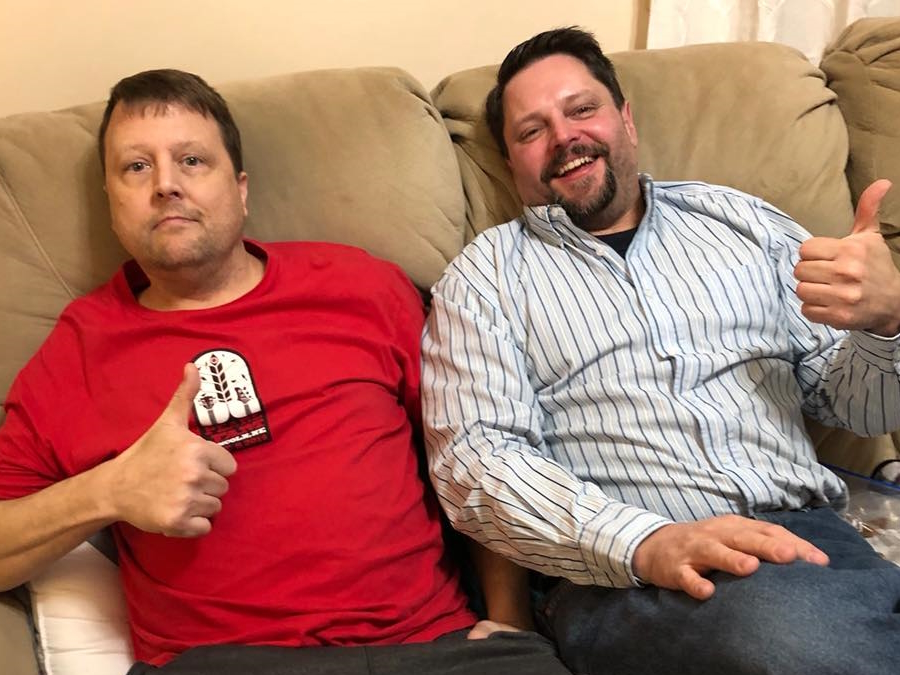
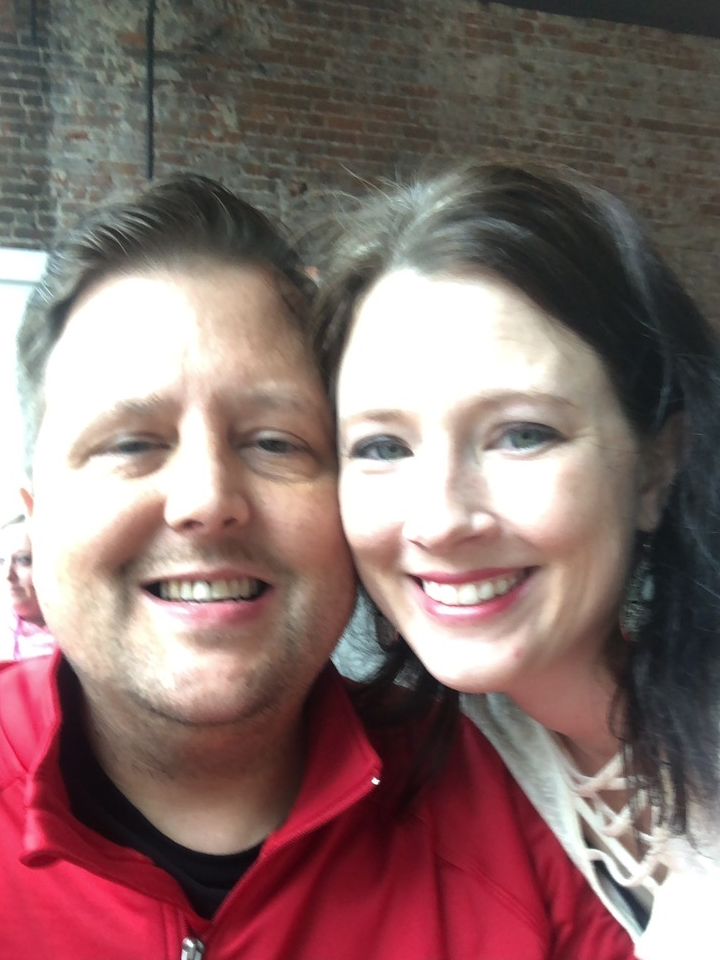
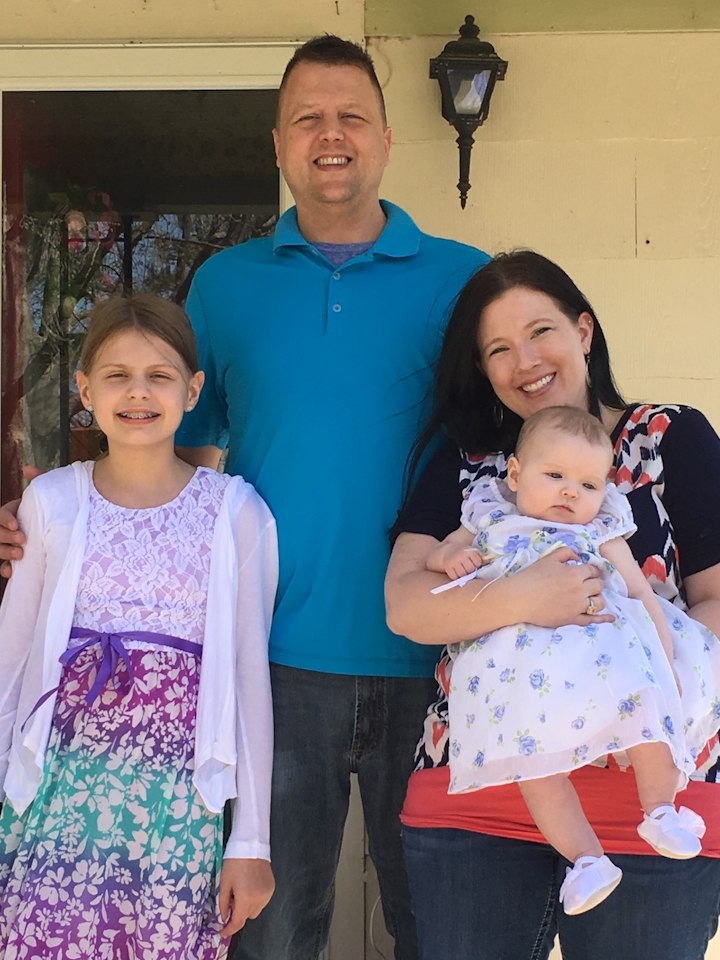
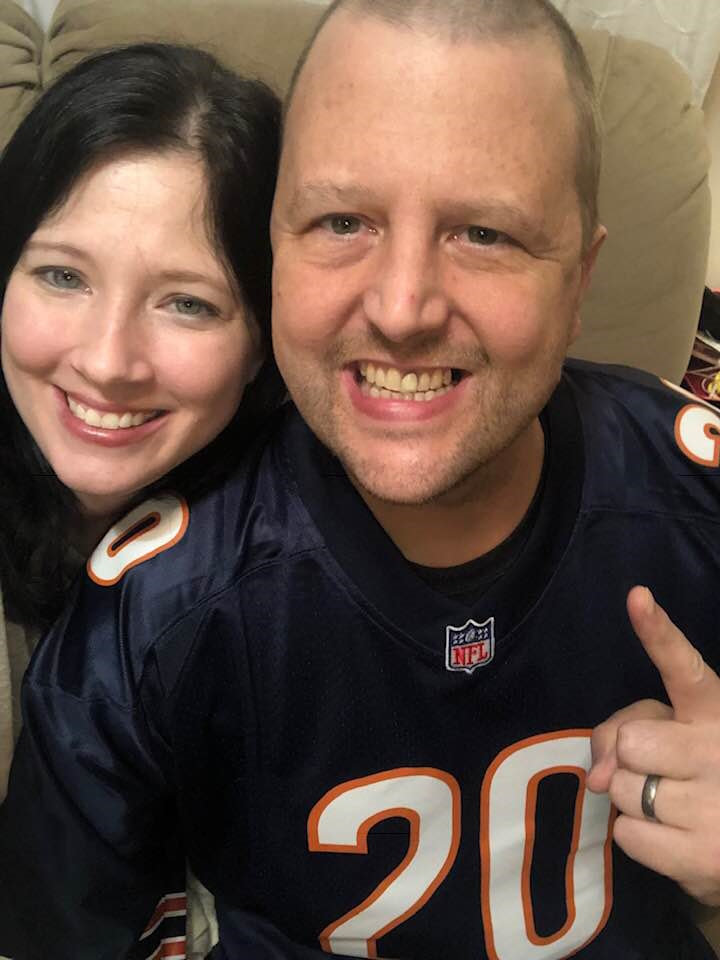
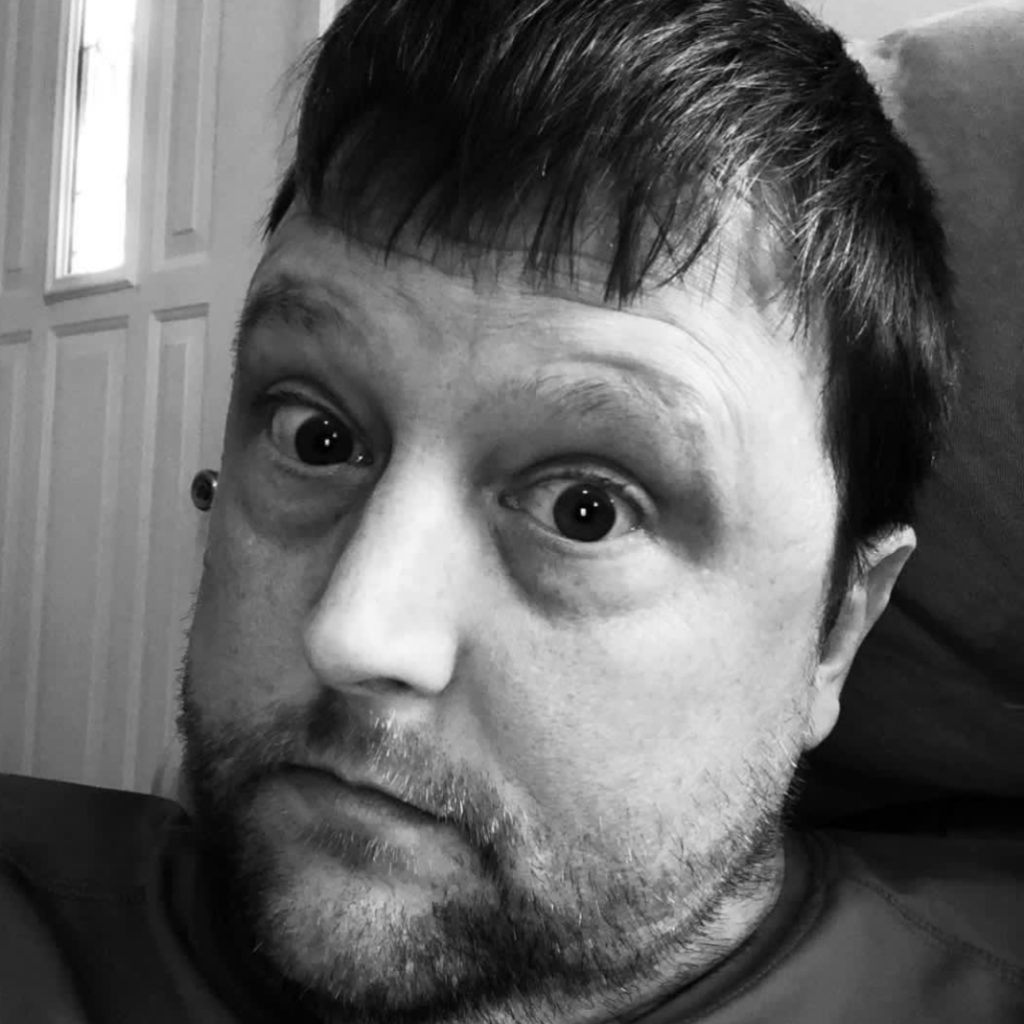
Learning about the possibility of cancer
I thought I had a slipped disc or ruptured something. In my brain, I’m headed for back surgery. I was joking with Melissa at one point and said, “It’s cancer. I know it’s cancer,” but I was screwing around.
He said, “I don’t know what to tell you. You’ve got cancer. It’s probably multiple myeloma or lymphoma.” That was a shock.
I had six compression fractures in my spine; that’s what I was walking around with. Melissa and I collapsed into each other in this big teary hug. She took me by my face, said, “We’re going to beat this,” and we cried some more.
They suspected I’d had it for quite a while. About a year prior to having back problems, I either broke or cracked a rib. When I went in, my doctor said, “There’s no point [in doing an] X-ray because there’s no treatment for it. You just got to heal.” I broke it just coughing and they suspect that was probably the myeloma also.
There was no incident. I never fell. I never lifted something I shouldn’t. There was nothing that should have caused them so it was quite shocking.
Diagnosis
Getting the official diagnosis
My oncologist, Dr. Renno, confirmed it was multiple myeloma. He talked to us for quite a while. He’s a very nice guy, very down to earth, and explained everything to us. He said, “The end of this journey is going to be a stem cell transplant.”
Breaking the news to the family
We had to tell my parents and that was very difficult for them. They had a very close friend lose a battle with cancer about six months earlier so it was very emotional for them.
A day or two later, I had my first oncology appointment and we were off and running.
Going to a concert after finding out about the cancer
Our oldest, Ainsley, turned 13 and I had gotten her concert tickets for her birthday. We were going to go and stay in a hotel and all that. Two days before, I get diagnosed with cancer but I’m not ruining her 13th birthday.
I drove. It’s about five hours away. I’ve got my cane, just stumbling along. We went to the concert, went to the hotel, had pizza afterward, and came out of it unscathed. I was freaking out the whole way that I’m going to be with my kid in Kansas City and my back was going to go out or I’m going to get sick.
My kids are everything. I couldn’t let her down and I wasn’t going to tell her I was sick. I wasn’t going to make her 13th birthday be about Dad having cancer.
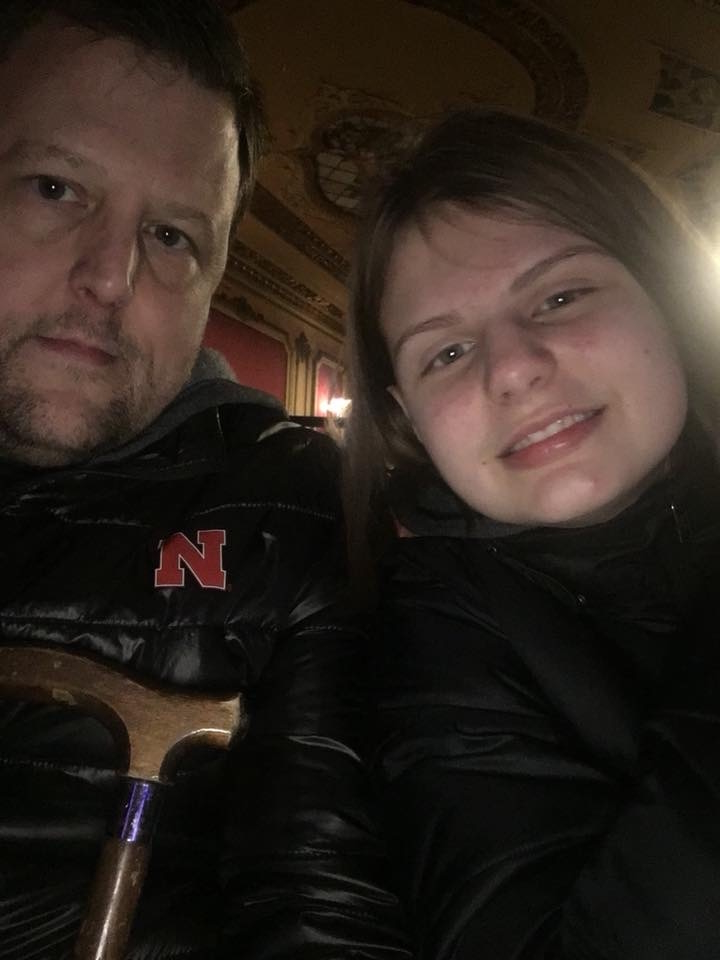
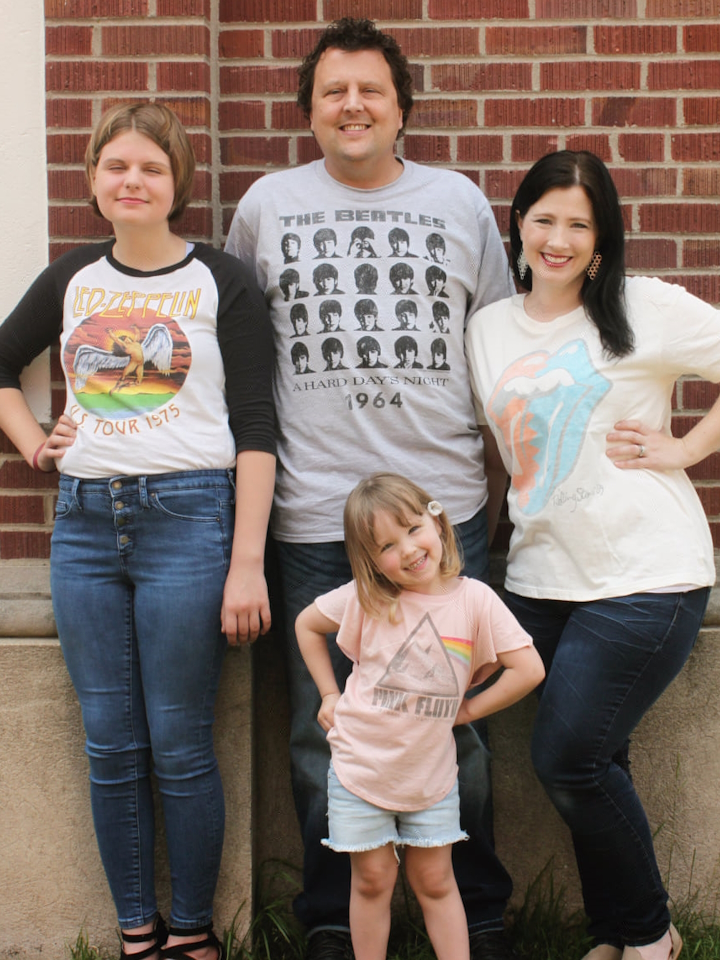
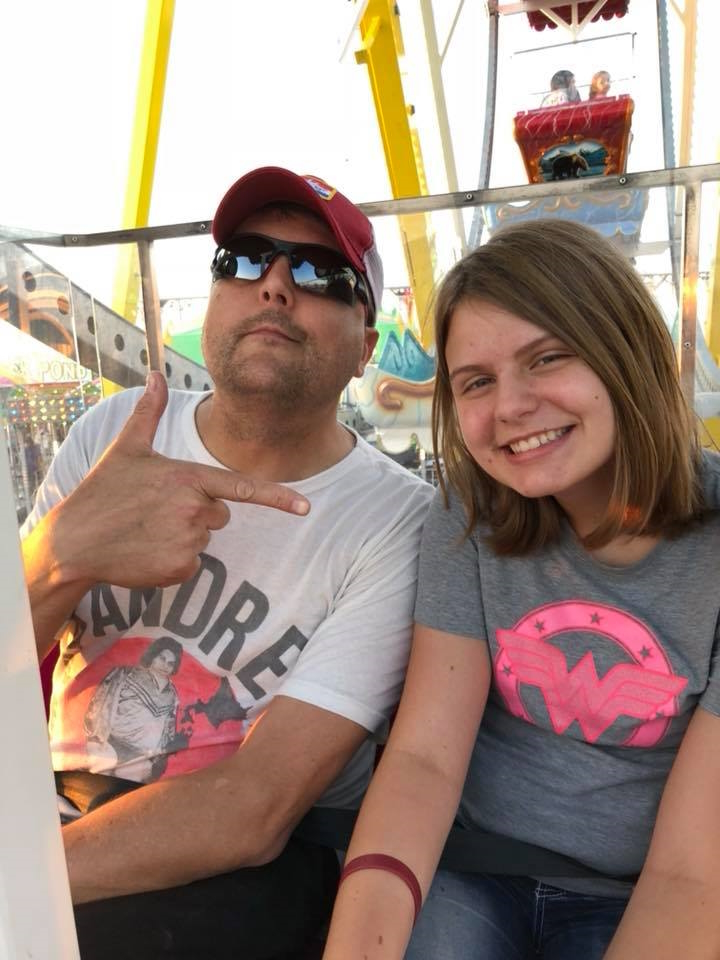
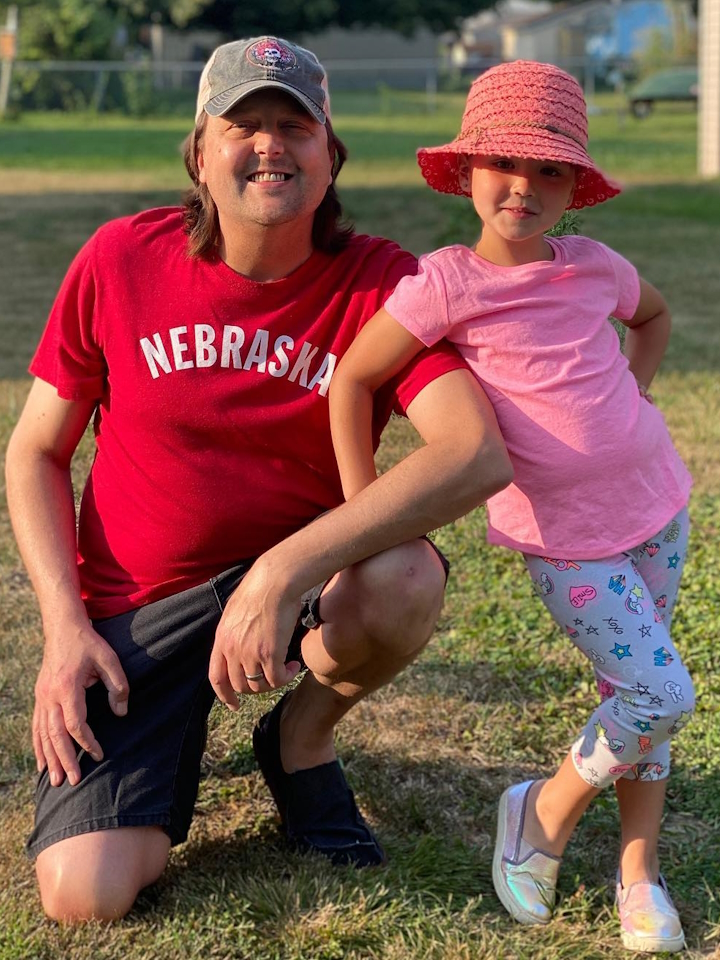
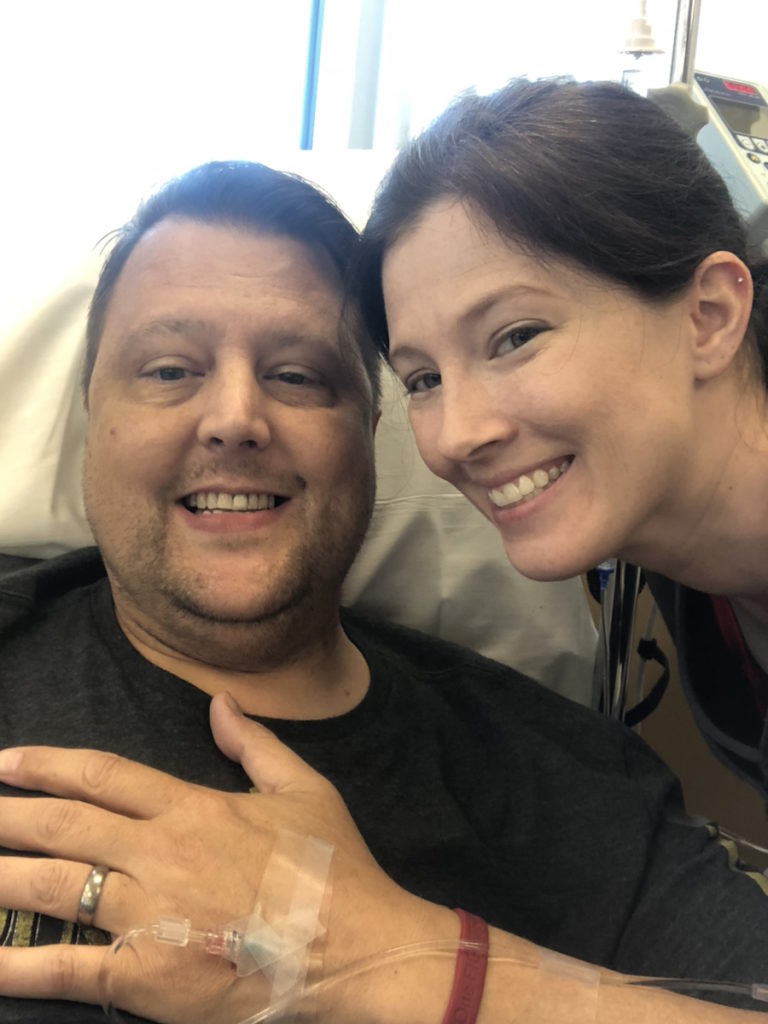
Getting a bone marrow biopsy
I had to get a bone marrow biopsy, which I’m sure anybody will know is painful. He had to do a manual one. I was bent over the table. My poor wife had to watch it from behind. She can handle anything, but she got about green watching it.
He said, “It’s going to hurt. I’m just going to tell you.” When they did it, I screamed out, “Oh, fudge!” They all bust out laughing and said, “We’ve heard the other word so many times. You’re the first person that’s ever said ‘fudge.’” I said, “There are people outside this door. I didn’t want to be screaming the F word.”
We were at the oncologist all afternoon then we had to rush home. I was the president of the Chamber of Commerce and we had our annual banquet that night. I’m sure I could have canceled, but I was going to be there.
Only two people there know I’m dying. I can’t walk so I’m moving from table to table, just using whatever to hold myself up. We somehow got through that night.
The next couple of days, we started letting people know what was going on.
Knowing about multiple myeloma
I’d never heard of it. Nobody had heard of it. All I knew about it was what they told me.
A distant cousin of my dad had it [at the] same time as me. He’s passed on, God rest his soul. I didn’t know him. I found out later.
To handle the whole process [of] having cancer, one thing I did [was] did as little research as possible. I didn’t go on the Internet. I didn’t want to know.
I did everything my doctors and nurses told me. Everything my wife told me to do. I thought, My doctors know best. I’m going to do what they say.
The more I read, the more freaked out I’m going to get. Why did I get this? How did this happen? It’s scary, especially when you see how rare it is.
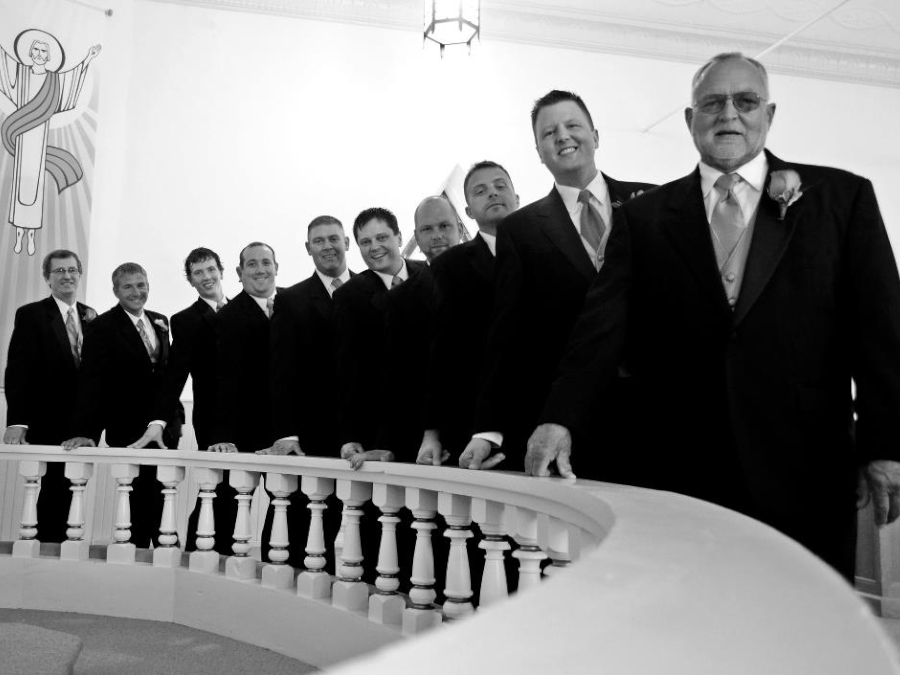
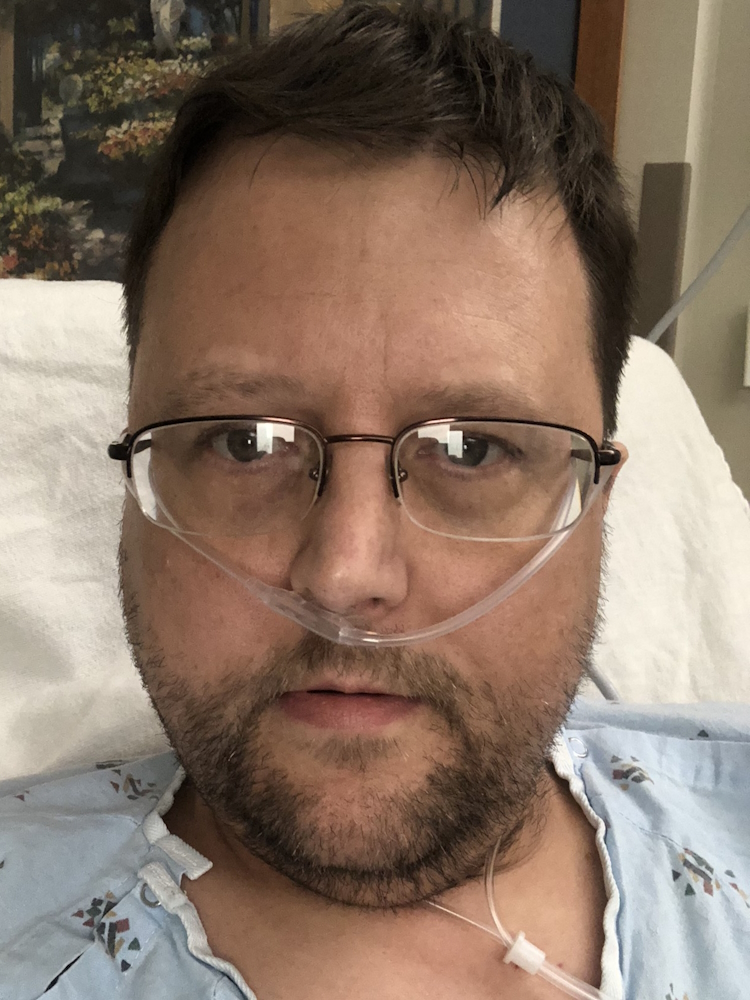
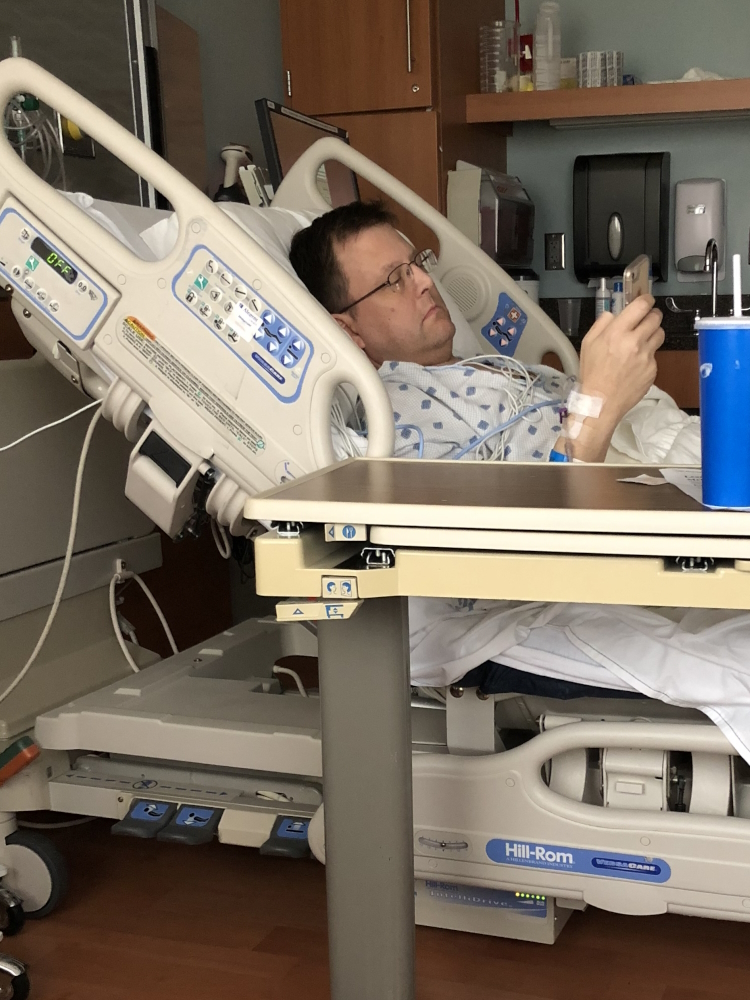
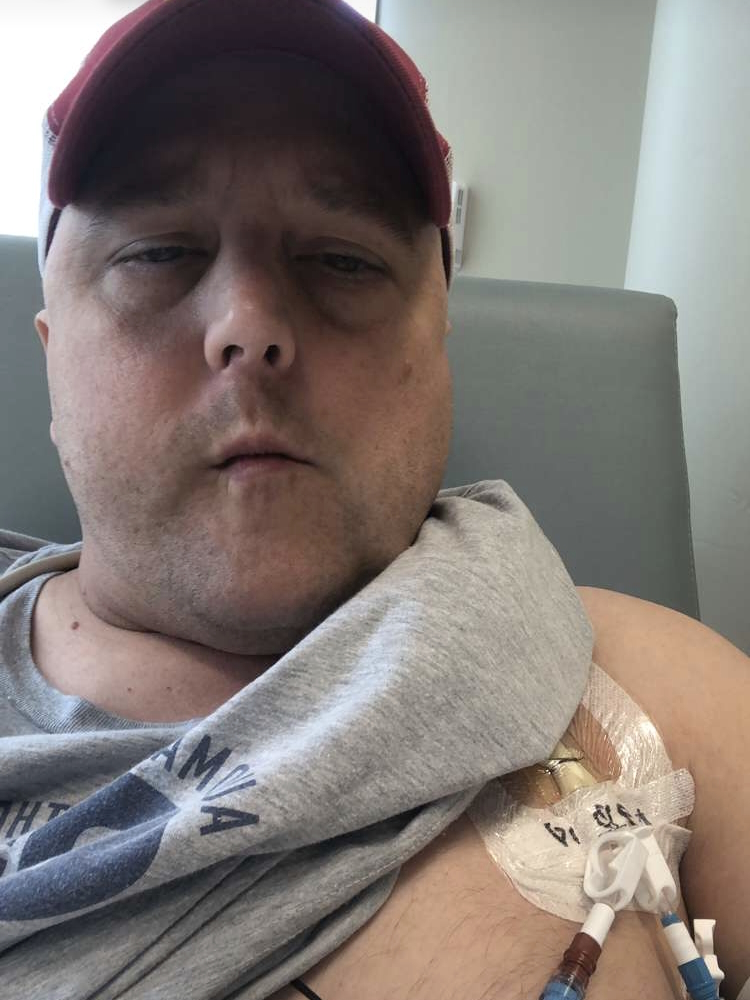
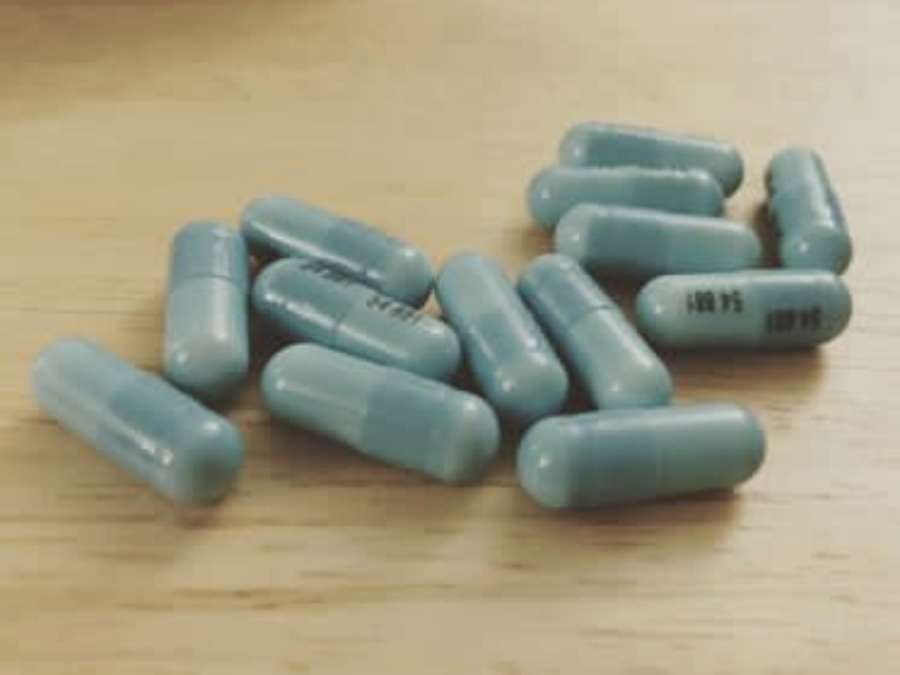
Treatment
Oral chemotherapy
Oral chemo was first. It was 13 chemo pills at a time. I would sit them on the table and stare at them. Even though they’re my ally, they’re my weapon, I hated that.
I would be up late and watch the late-night West Coast NBA game. I became a big NBA fan because I watched a lot of basketball.
Then it led to infusions several weeks down the line.
Side effects of chemotherapy
I did not tolerate the oral chemo well. A lot of throwing up.
Very quickly, maybe after two weeks, I got double pneumonia. I was sitting on the couch, Melissa was working that day, and Addison, our youngest, was at my mom and dad’s. She was two at the time. They were watching her because I couldn’t.
Right about the time Melissa was going to get off work, I was having trouble breathing. We were texting back and forth and she said, “I’m going to go get Addison.” I texted her and said, “Can you please come home first?” She did and I could hardly breathe at that point. She said, “I’m gonna take you to the emergency room.”
I got up, started walking, and collapsed. She called 911. We live in a small enough town that everybody knows where everybody lives and everybody knows me. I think the entire volunteer fire department showed up at our house to wheel me off.
They took me to the hospital. I was out of it. They said, “We can’t do anything for you. We’re shipping you off to Omaha.” I was later told they didn’t think they were going to see me again, which is quite a thing to hear.
I was in Omaha for 5 or 6 days. I was in ICU for 3 or 4 of them, which was miserable because they were full. They didn’t have a real room to move me to. But I got over the pneumonia.
We found out my kidneys were failing so they started treating that. Kidney issues are a big part of multiple myeloma. I was stage 3, which with multiple myeloma is the worst. Eighty percent of my bone marrow was affected so I was in bad shape.
They sent me home after 5 or 6 days, thank God. My mindset had been, I’m not going to let this stop me from doing anything. Then I learned, I got to take this seriously. I can get sick and die real easy so I do need to pay attention to what I’m doing.
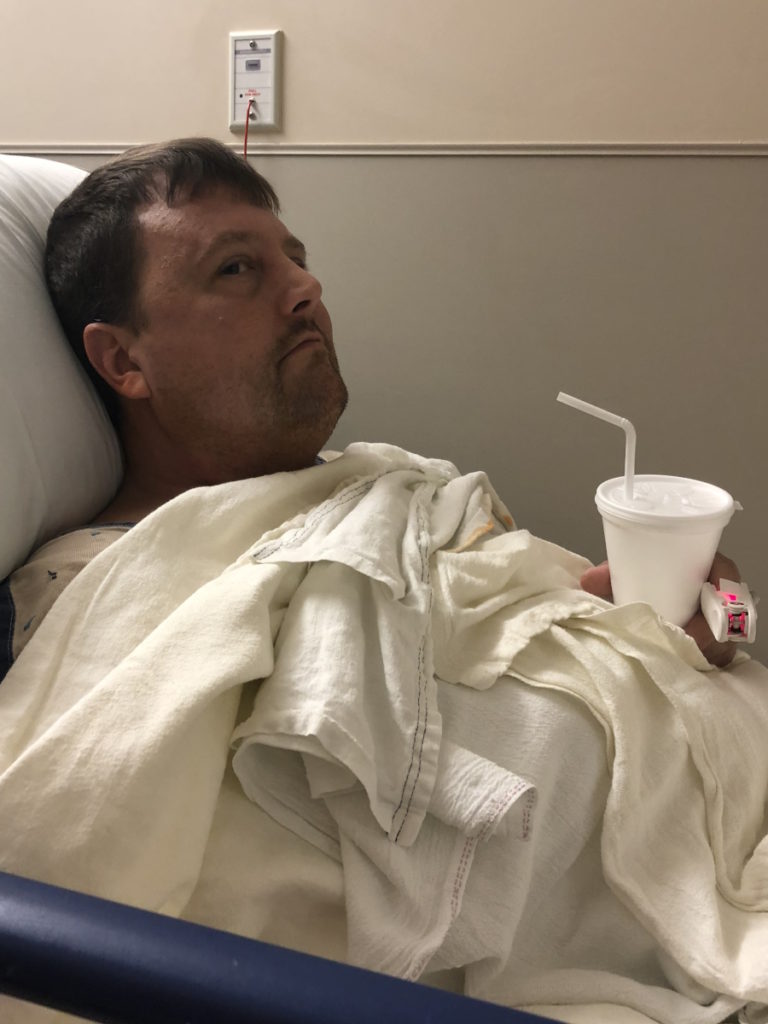
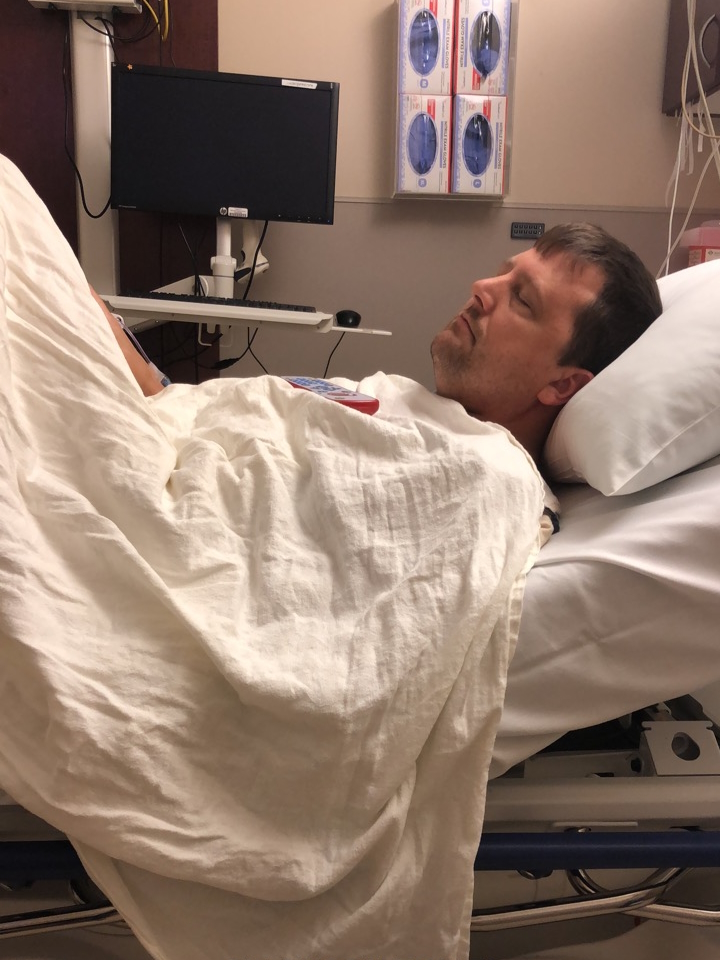
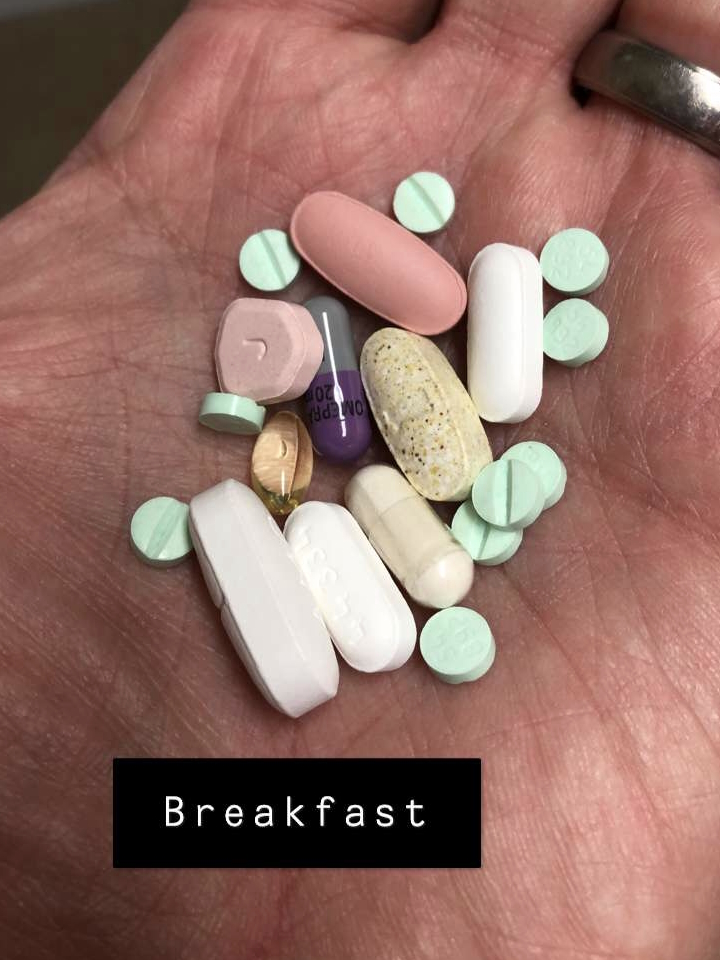
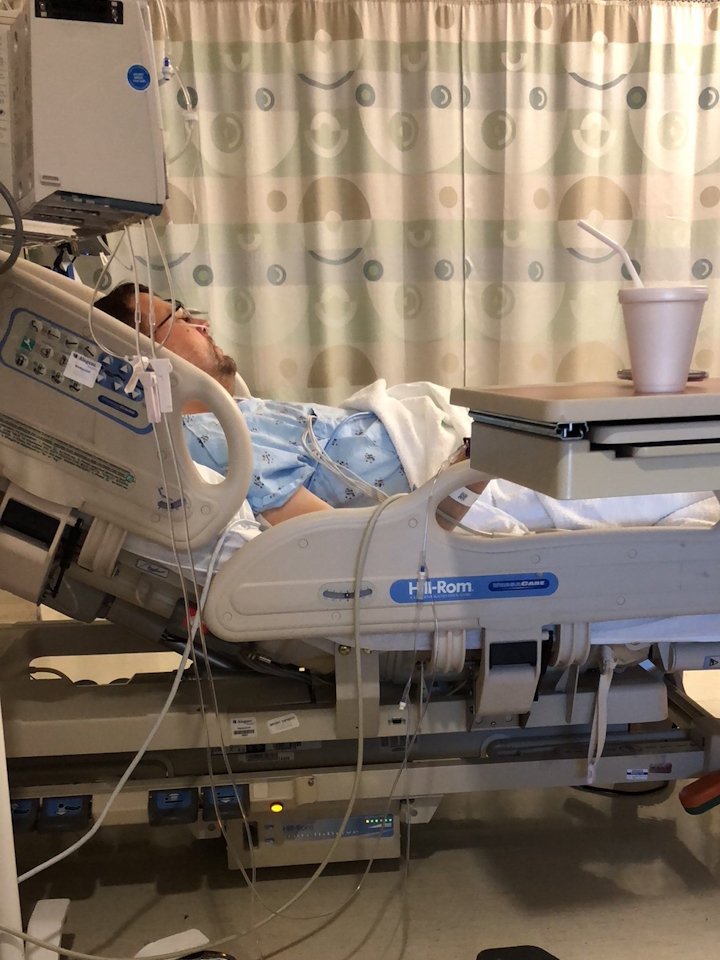
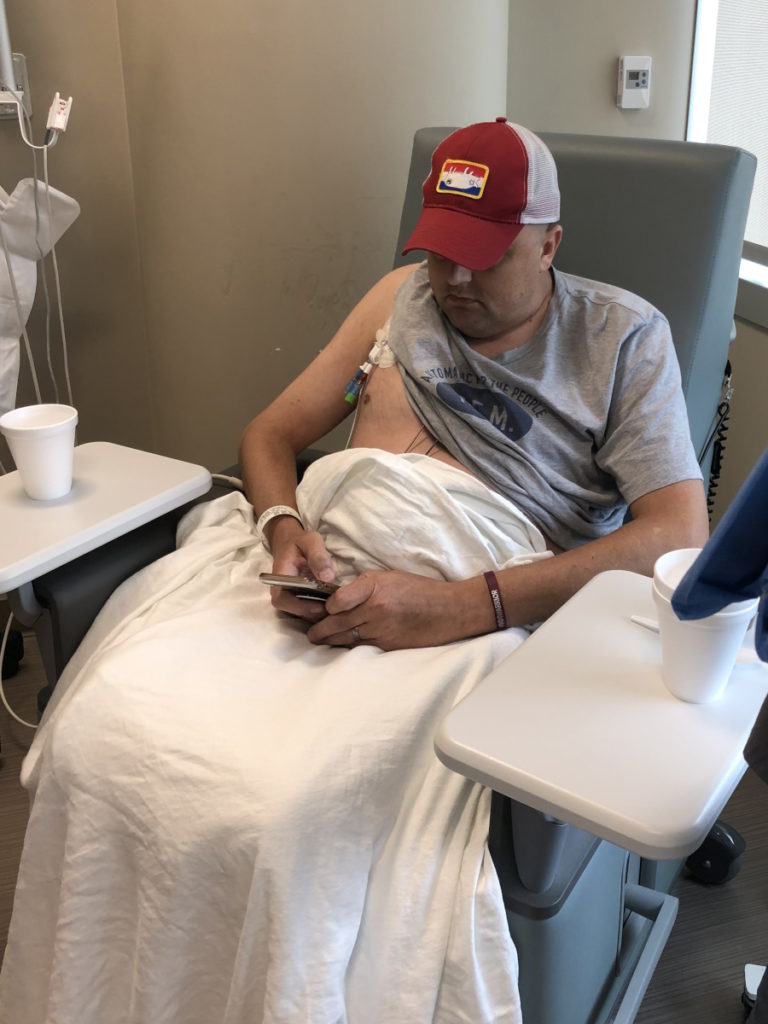
Chemotherapy infusions
I tolerated the infusions pretty well, but the chemo they were giving me caused allergic reactions so they gave me a script for some anti-allergy medicine. They said, “You have to take this before your first chemo and then [each] one after that.”
I forgot to take but I didn’t want to tell him that because I wanted to get the chemo rolling and didn’t want to delay it even just a day.
The first infusion takes 8 or 9 hours. They do it really slowly because they want to see how you tolerate it. At least halfway through, I had [an] allergic reaction.
I could breathe, but it was bad. I never told them because I didn’t want them to stop. I wanted to get through chemo and get this moving, which is reckless and dumb, but I made it through.
I’d miss a day of work and come back the next day. A lot of times, I’d go home early because it would really wipe me out, but I never had stomach problems or anything with it.
It was boring more than anything else because you sit in the chair for 4 or 5 hours. You can only read so much. You can only play on your phone so much. You can only nap so much.
I had about six months of infusions.
Side effects of chemotherapy
As far as the infusions, it made me tired, but otherwise, I didn’t really have a problem tolerating it.
Dexamethasone is a nightmare. I would be bouncing off the walls and be very irritable and agitated. I couldn’t sleep at night. I’d be up ’til 3 or 4 in the morning, and then I would crash the next day and a half later. I would be dead to the world. It’s a big part of fighting multiple myeloma, but it sucks.
It made me extremely productive at work, but it sucks.
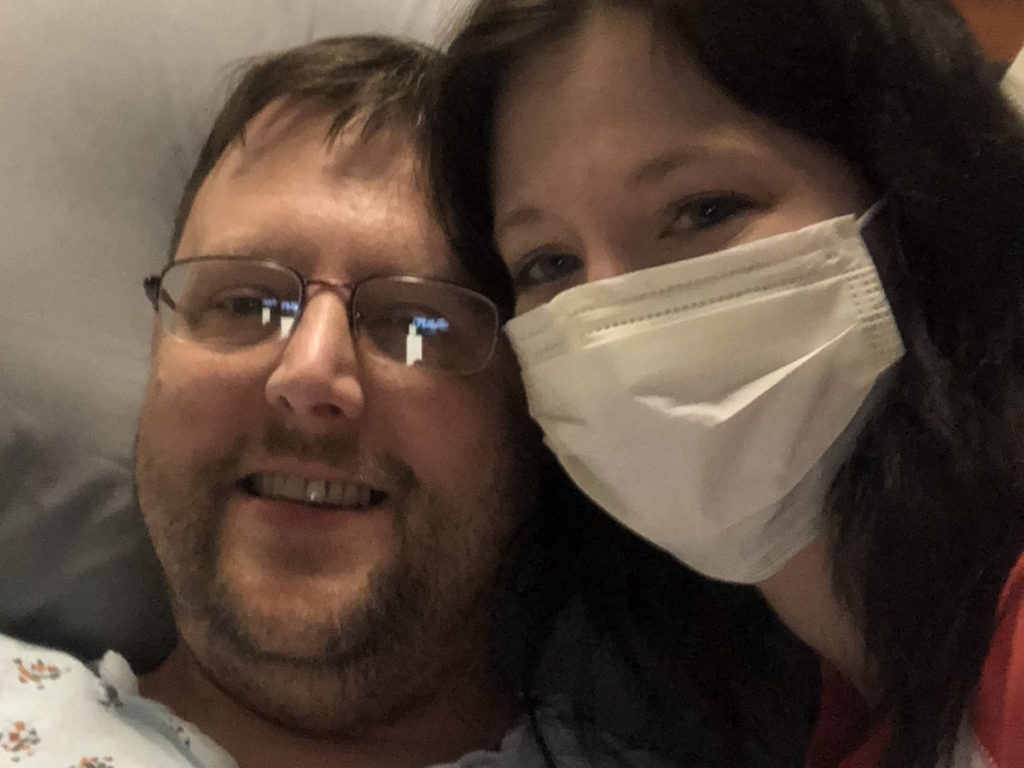
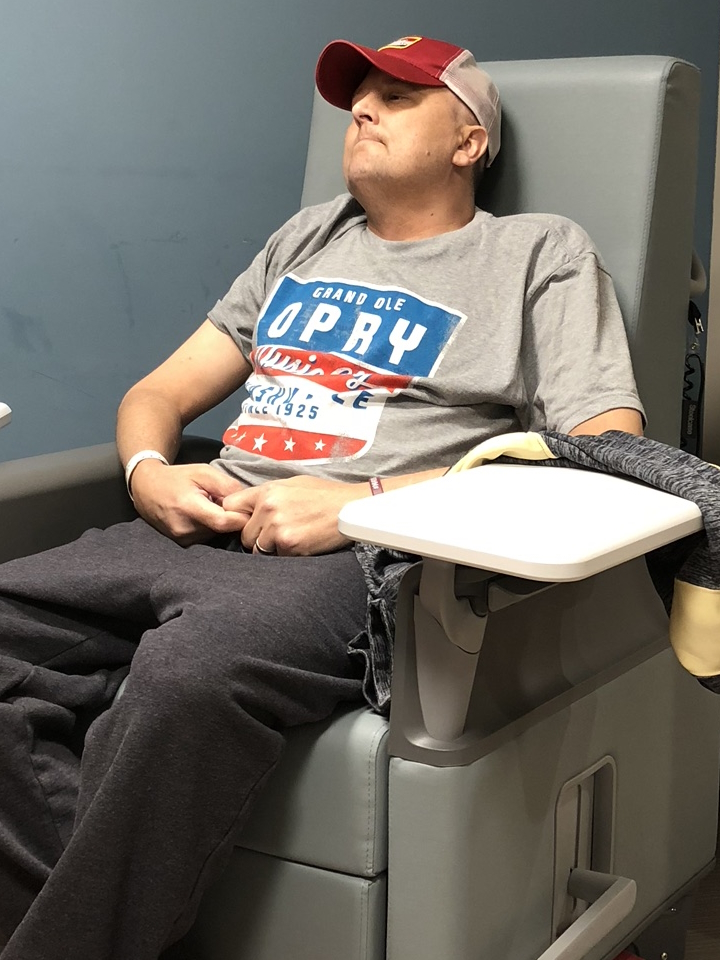
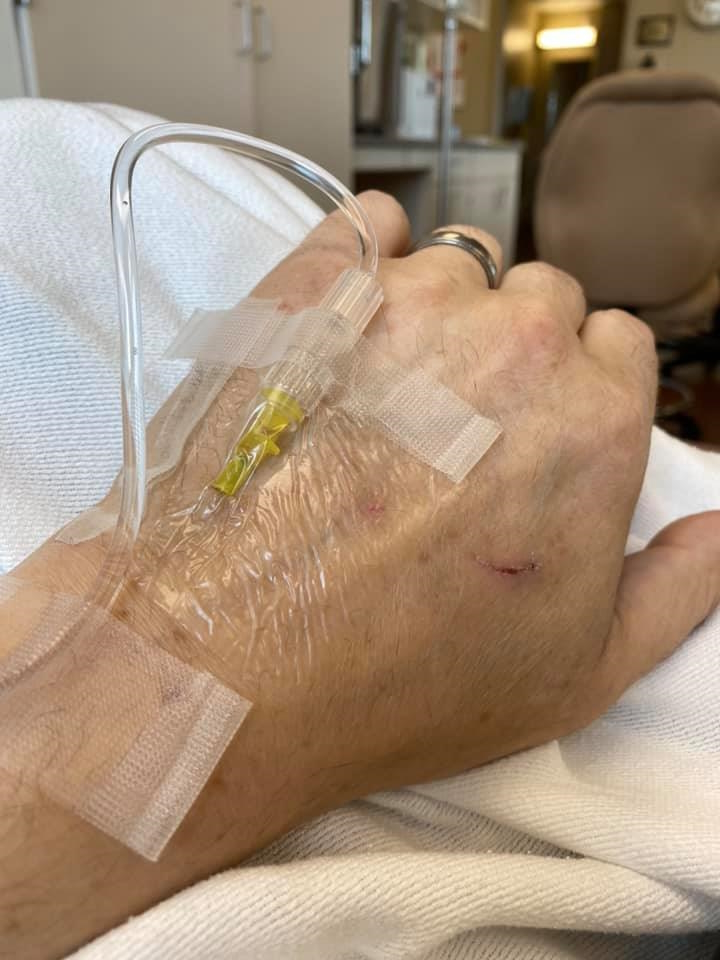
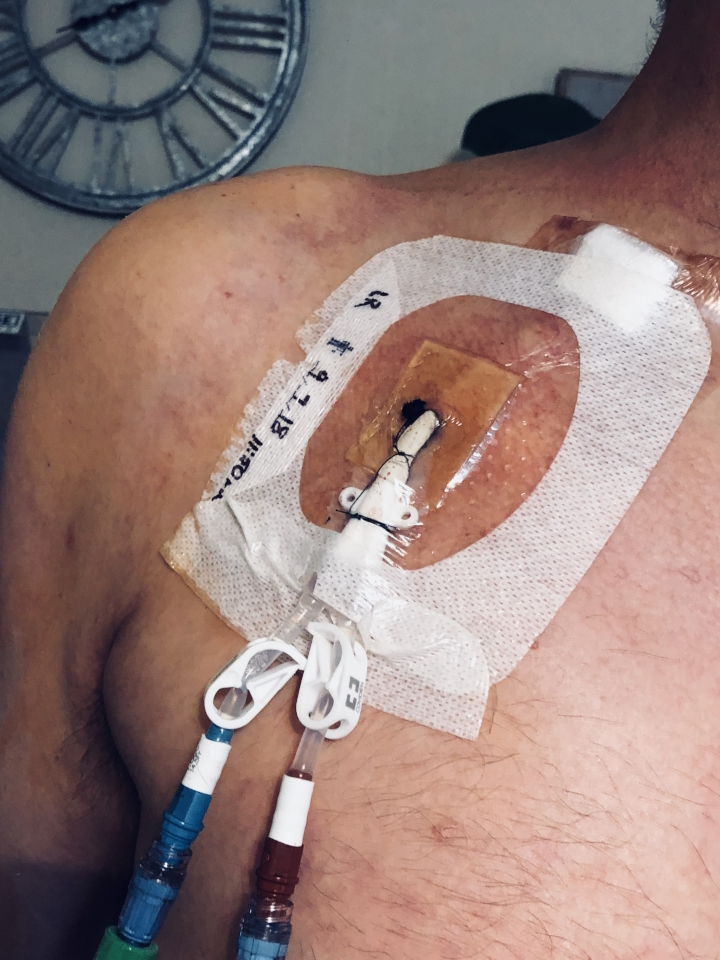
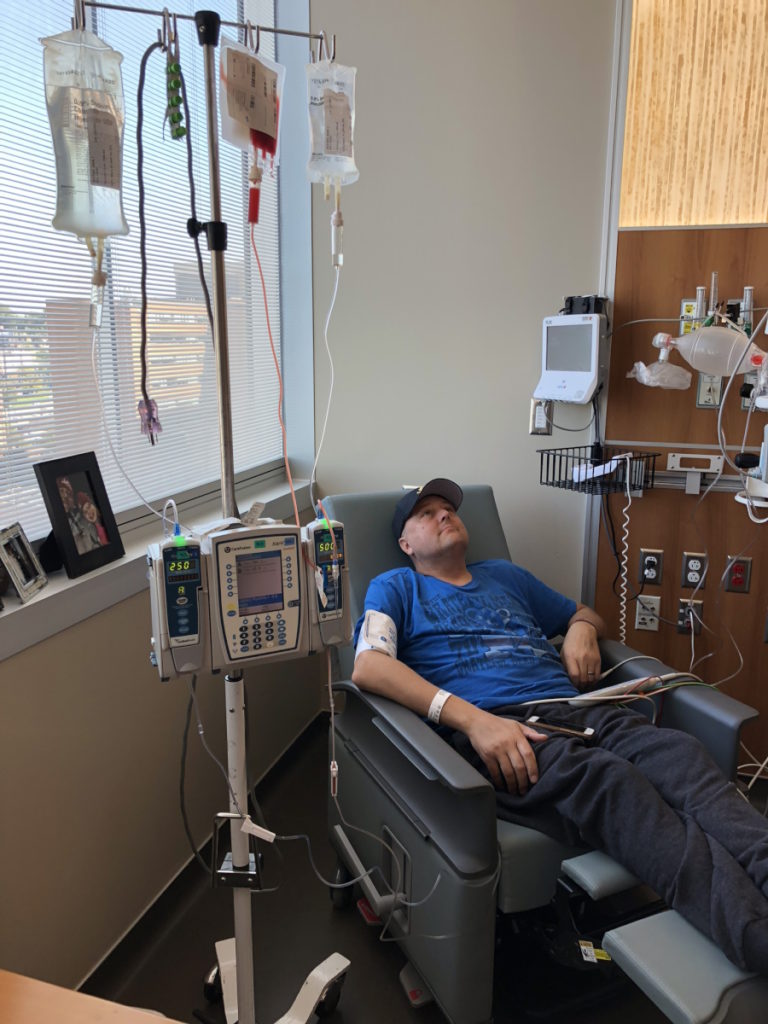
Stem cell transplant
I did a bone marrow biopsy in May because we were originally hoping for a May transplant. The number hadn’t gone down enough. It had gone from 80 to 25, but you have to be below five to do the transplant. That was a bummer because we were ready for this.
I met my myeloma specialist Dr. Baljević in April. He was a saint. We were very blessed to have a specialist just an hour away.
Because of insurance reasons, I had to get the transplant at a different hospital system than my oncologist so I got handed off midstream.
They gave me the binder for the transplant. They sent me a bunch of YouTube links and said, “Watch this. This is exactly how it goes, what you go through.” I sat and watched and I was in tears.
It was traumatic. They talk about melphalan, [which] wipes out all your white blood cells, takes you back to zero, and how dangerous that is. The idea of harvesting really freaked me out. It just seems so scary.
I thought, I can’t do this. It’s going to be too hard. I sent it to my folks and my mom was devastated watching what I was going to go through. My wife would tell you I was adamant, but I picked myself up and realized this is the best way to keep living so we got to it eventually.
You’ll be in the hospital for three weeks or more and be isolated. This was pre-pandemic so we weren’t wearing masks. I’m going to be essentially alone. It was very overwhelming. My psyche was pretty fragile at that point so it really broke me.
Having a supportive medical team
Thankfully, my myeloma specialist was awesome and his assistant, Jennifer, was a saint. She answered every phone call, every email, [and] everything my parents wanted to know. She was amazing, incredible. We still exchange Christmas cards with her. I had really good support from the medical end.
The first time I met Dr. Baljević, I asked him [about] percentages. He was being very honest with me and said, “You’re in good shape. You should get through this and, hopefully, we’ll defeat the myeloma.”
I told him, “I’ve got two girls. I can’t go now. I have to get through this.” He put his hand on my shoulder and said, “You will. We will get you through this.”
That first appointment was very emotional because I was just so frightened to leave my girls without a dad and my wife alone, too.
He’s somebody that knew that cancer inside and out, knew what the best path was. It was very reassuring, very comforting.
He was a man of God, too, [a] big man of faith. I remember afterward thanking him for saving my life and he said, “I didn’t do anything. God did it. I’m just His hands here, making it happen.” He was terrific.
Unfortunately for people around here, he’s moved to Nashville now. He’s at Vanderbilt and good for them. He was a real blessing. I don’t know what we would have done without him.
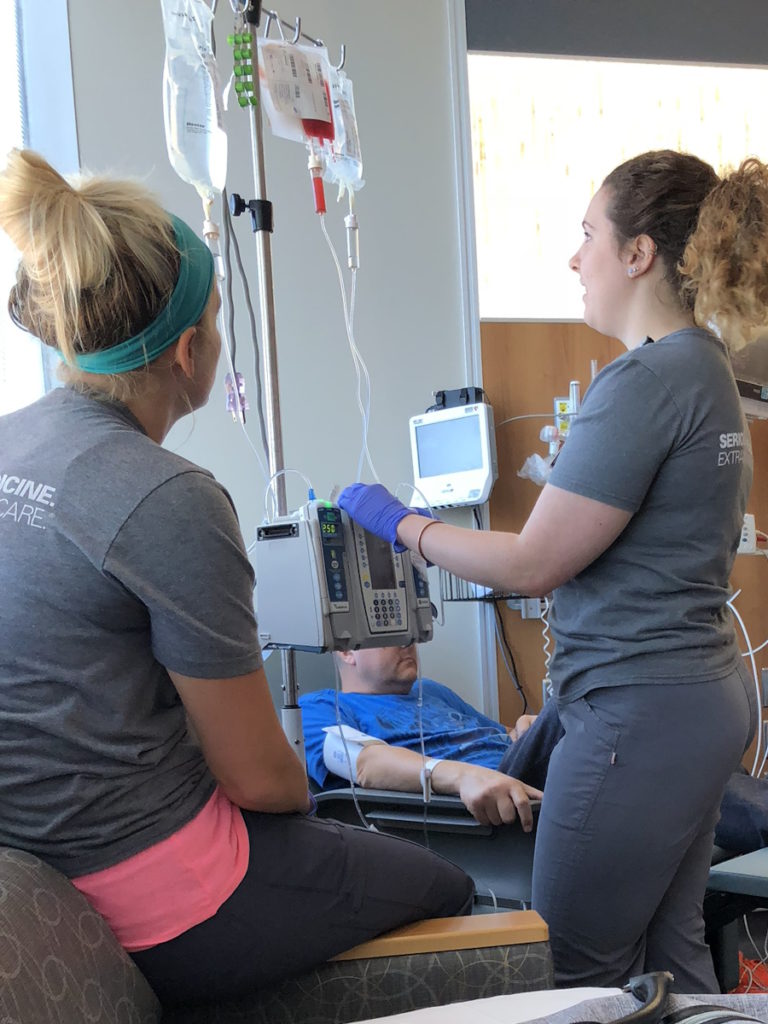
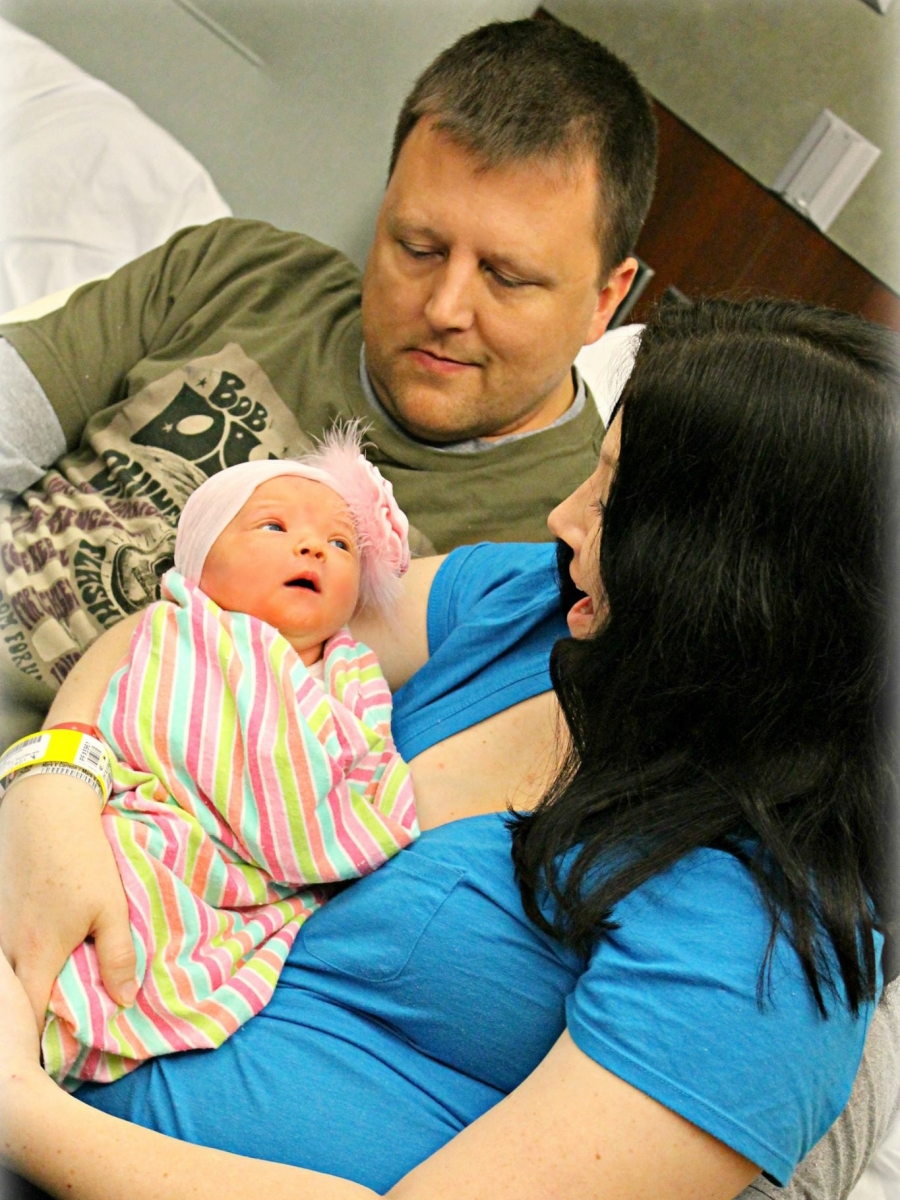
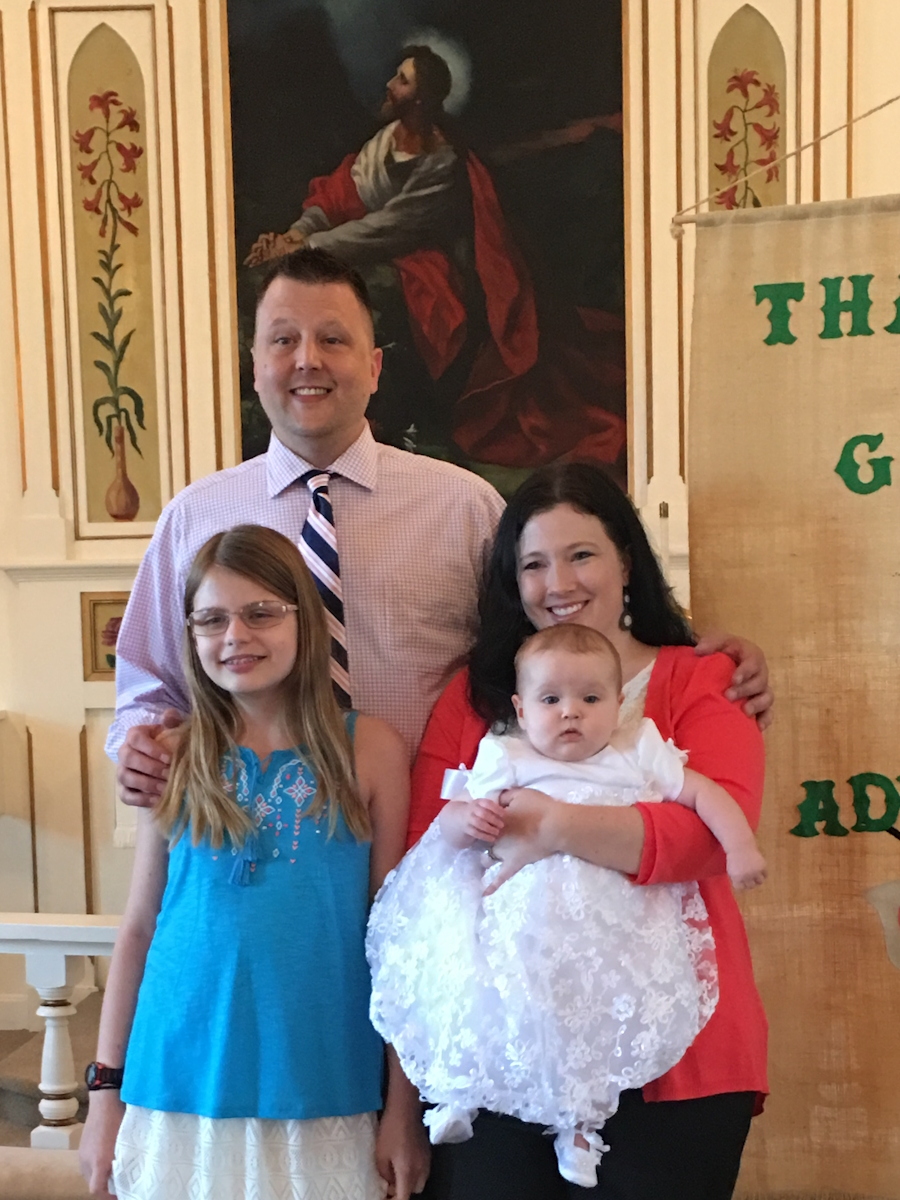
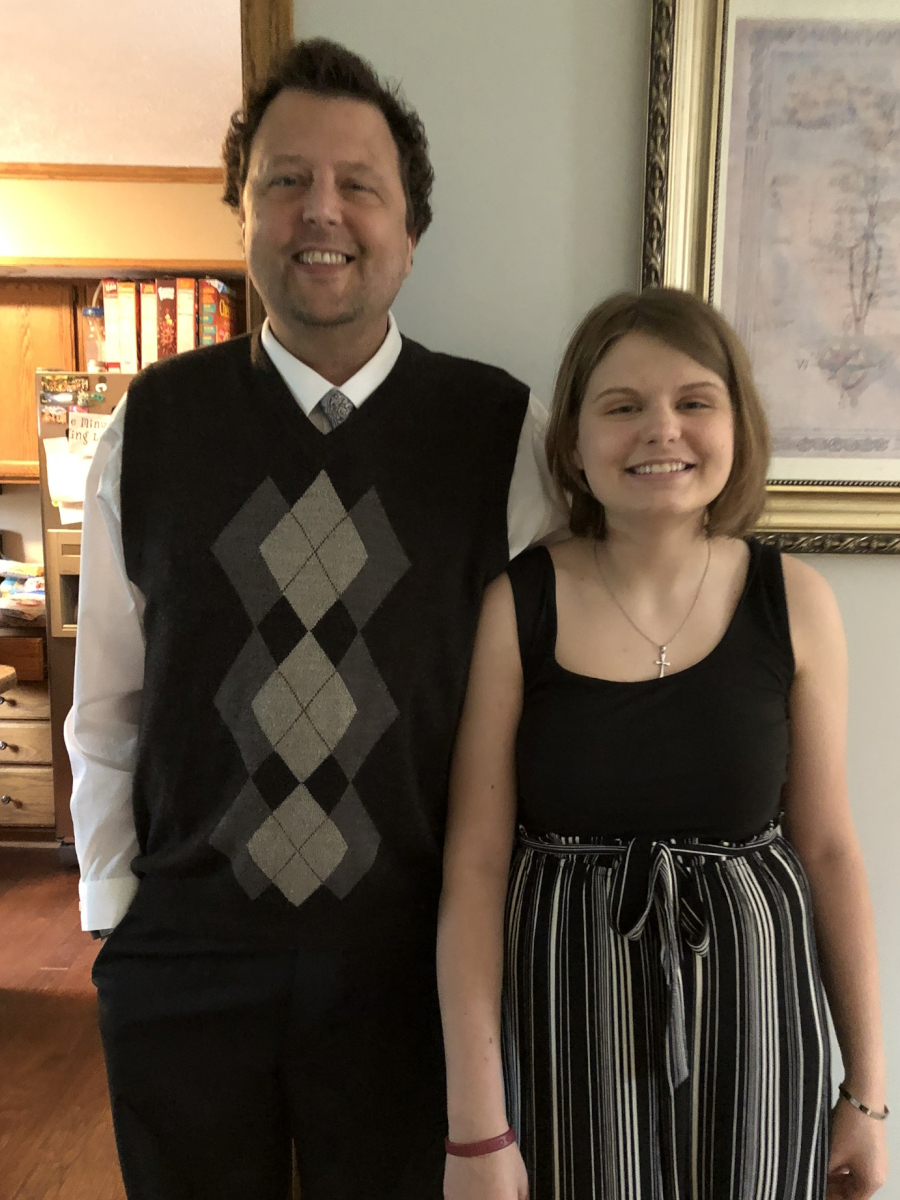
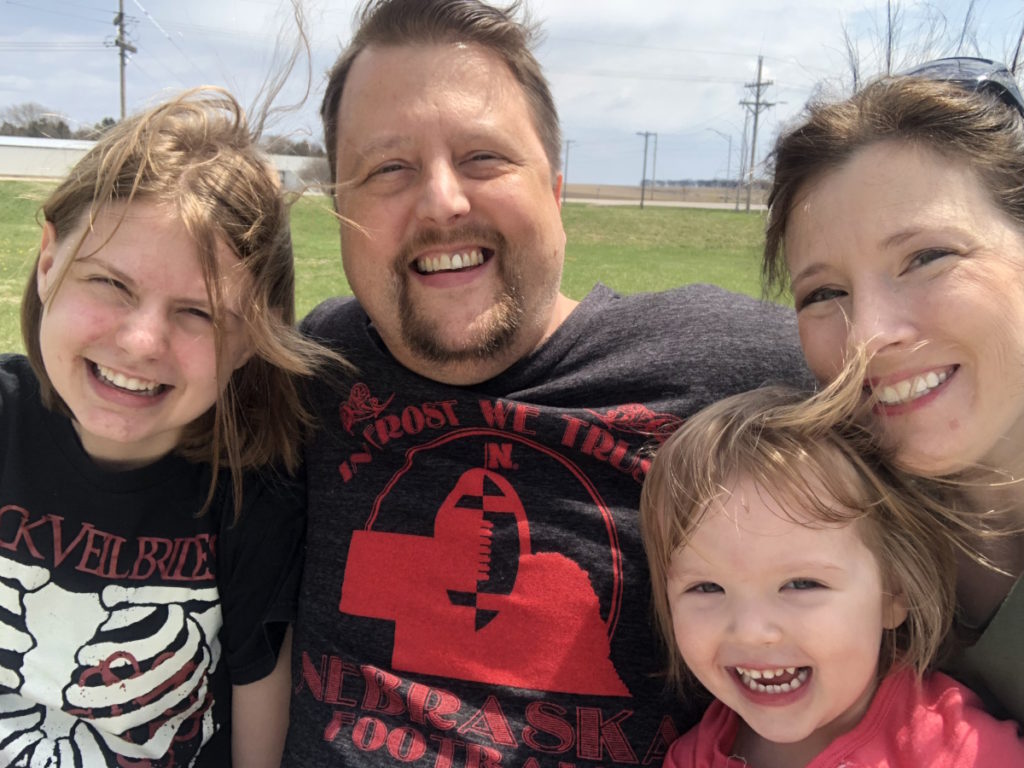
Navigating the emotional path to a stem cell transplan
My family was my big driving force. I was mostly thinking about my kids and Melissa. The kids were 13 and two. They need a dad. I can’t leave them now. God bless my wife, I didn’t want to leave her alone to have to do that.
They were incredibly supportive. Ainsley, our 18-year-old, was 13 at the time. She had a really hard time with it. She had some breakdowns, but she talked to somebody, had some help, and got through it.
I remember telling her, “All I need from you is to keep doing well in school, keep doing your homework, keep going to class. The last thing I need is to have to worry about you failing school or having problems,” and she kept her end up. She’s an honor student. She’s amazing.
We were blessed by our youngest, Addison. It took a long time for us to get pregnant with her. We’re convinced God sent her at the right time. She was two so she didn’t know what was going on. She was such a light. She was so much fun. Watching her learn and grow was so inspiring. I know she kept her mom sane.
My wife’s a five-alarm fire. I’m the lucky guy.
God bless my dad. My dad took me to every single chemo, every doctor’s appointment, everything. My wife was working full time. We were on her health insurance. My dad’s a retired farmer. He was amazing. I have periodic check-ups and to this day, he asks if I want a ride.
My mom watched our kids. She was so helpful with Addison. It was unbelievable. I can’t say enough.
My family was what made me say, “You got to do this. We’re going to do this.” God blessed me a lot.
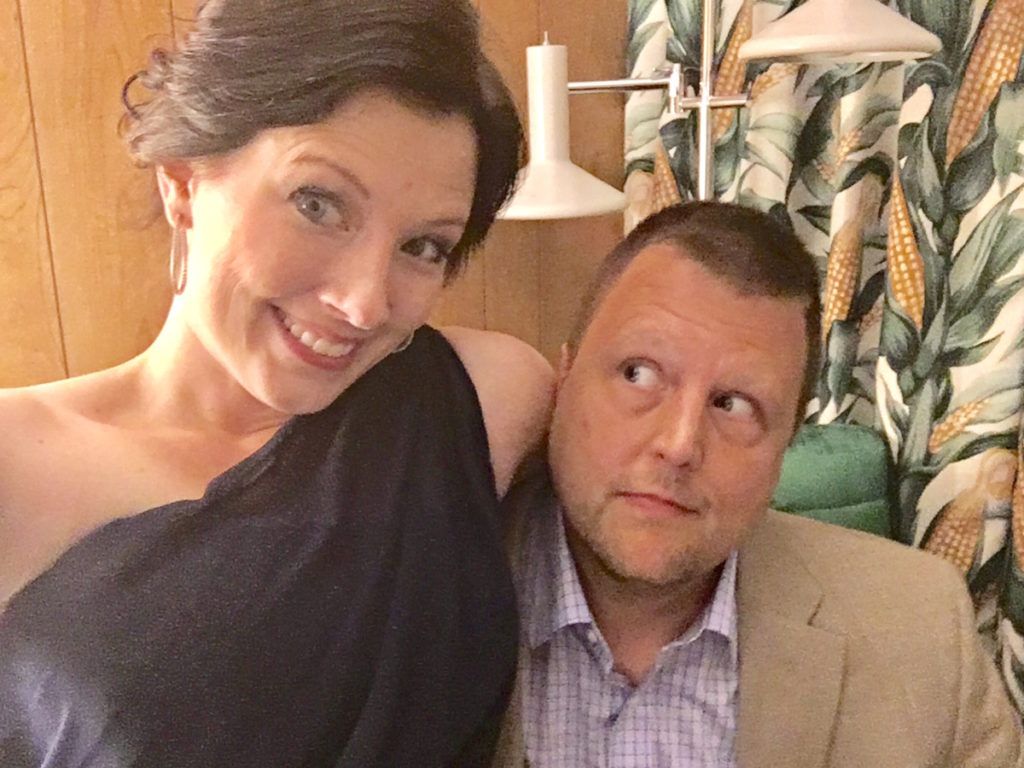
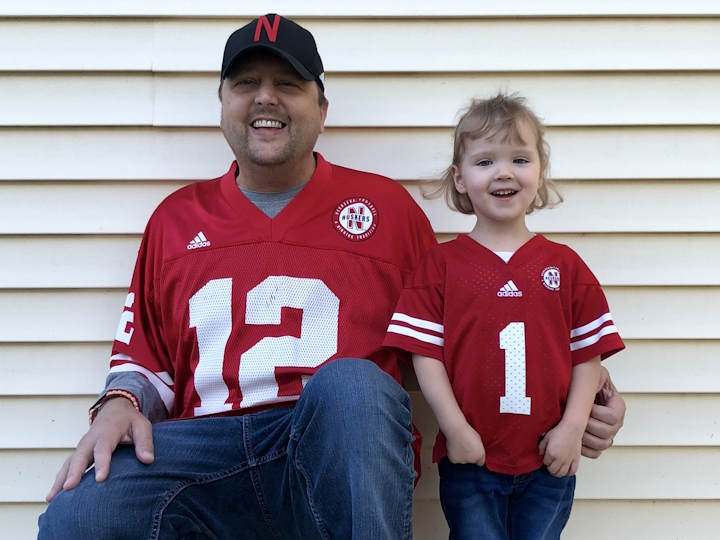
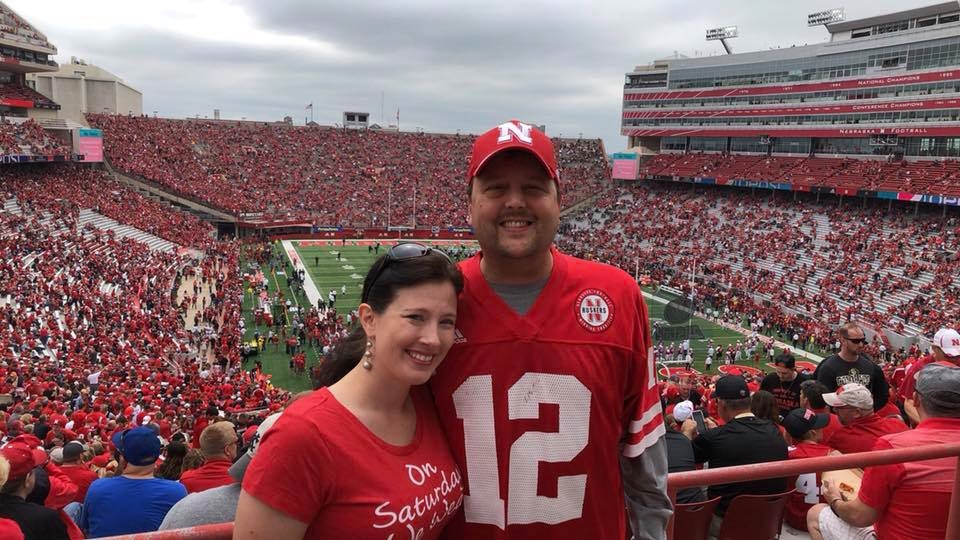
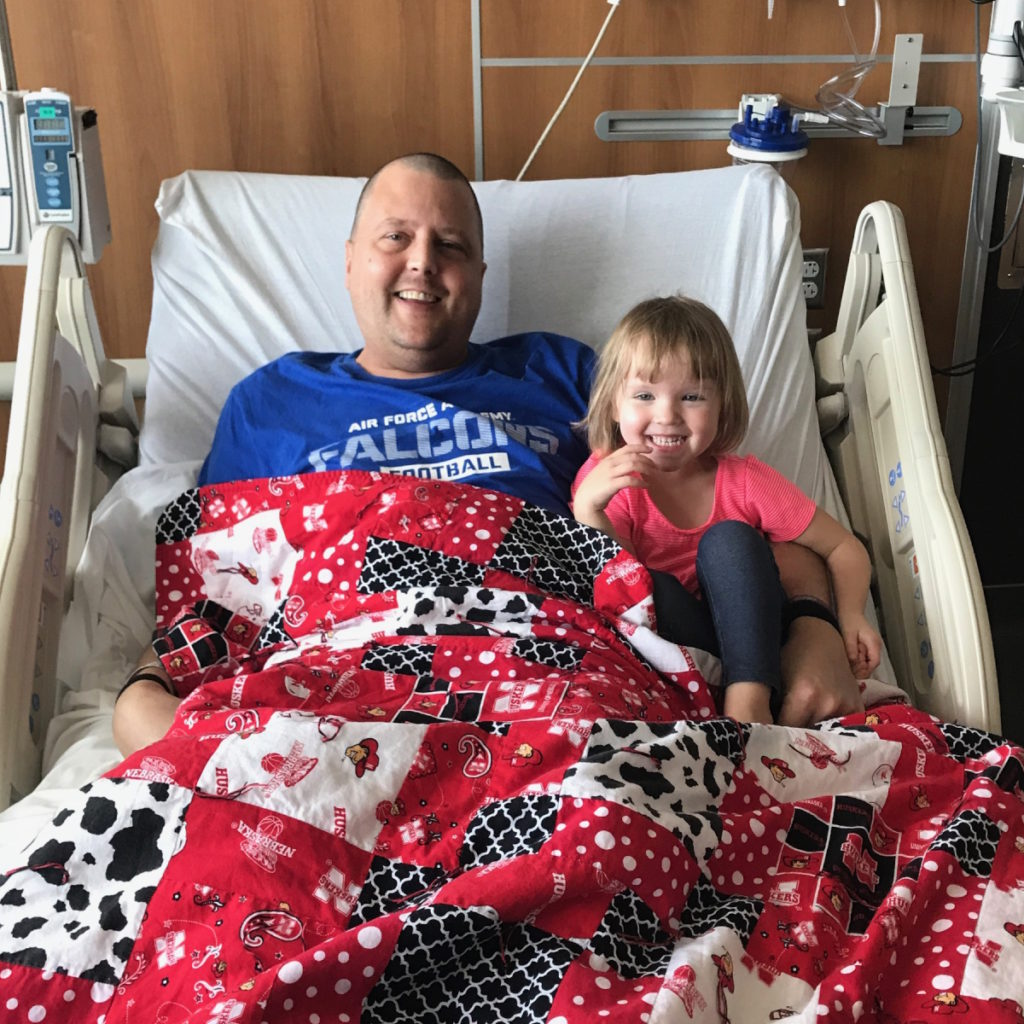
Preparing for the stem cell transplant
A week or so before the transplant, they harvest your stem cells. I had to go in the day before and get a shot that’s supposed to jumpstart their productivity.
I had to be there early in the morning. My dad took me to Omaha. We had to be there two days in a row.
I had a port in and they hook you up to this washing machine-looking thing. You sit in the chair for several hours while they harvest your stem cells. Then they put them back in after they cleaned the bad stuff out. I’d do that twice.
It didn’t hurt. It was just very daunting. They were able to harvest enough for two transplants. You know how this disease is. I may face that again down the road so that’s there, which is nice to know.
We went to the Buffett Cancer Center in Omaha, which is an amazing facility. Checked in the day before the transplant.
[They] hook you up to melphalan, the hair-falls-out, makes-you-really-sick, kills-everything-inside chemo. It took 45 minutes or an hour. Melissa and I were alone in the room the whole time so we just talked.
We had a nice, big, clean, beautiful room. Everything’s sanitized. They said, “Bring whatever you want from home because you’re going to be here,” so I brought a bunch of pictures, little good luck charms, tchotchkes, and this quilt people made for me.
It’s constant blood draws and checking this and that. [On the] second day, they do the transplant. They bring in your frozen stem cells. They point out to us, “See those little flecks in there? That’s your stem cells.”
We did that. It was maybe 45 minutes then it was back to laying down.
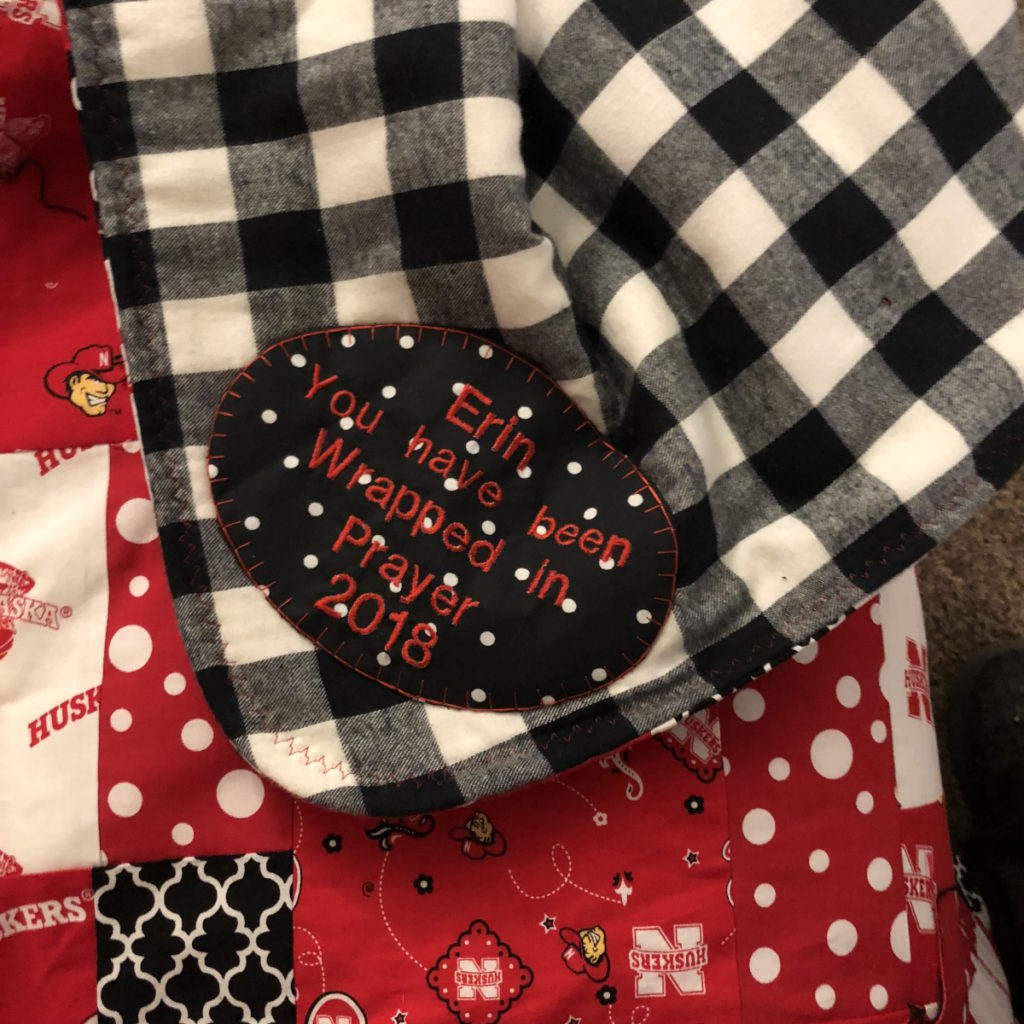
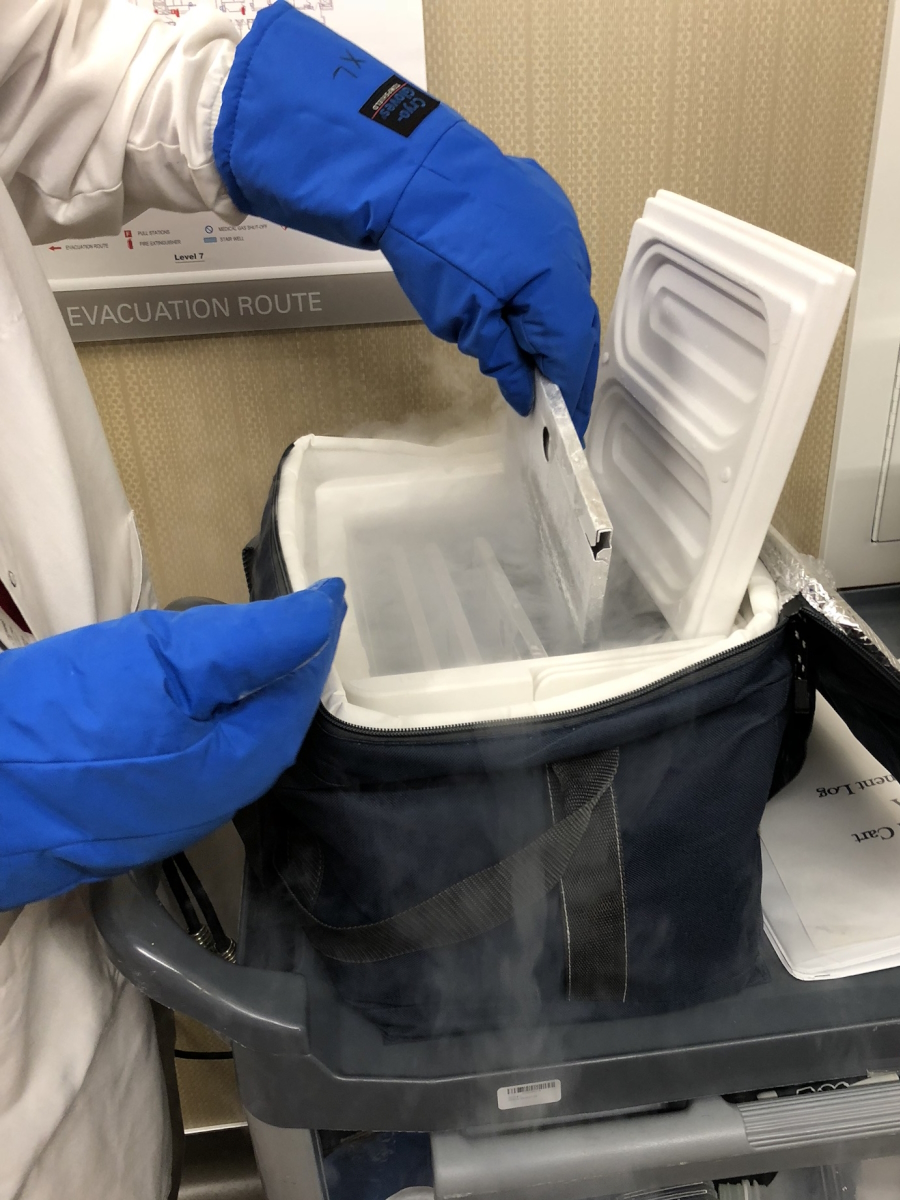
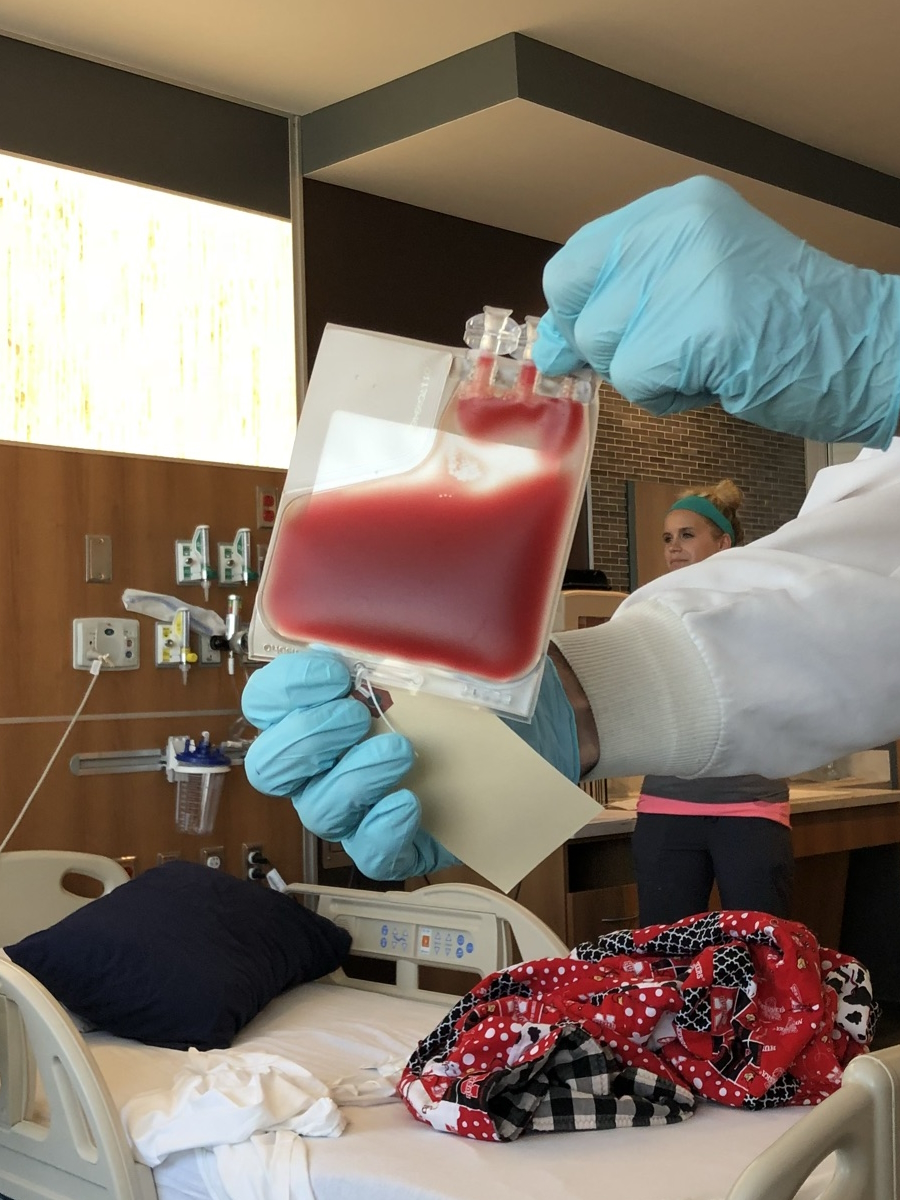
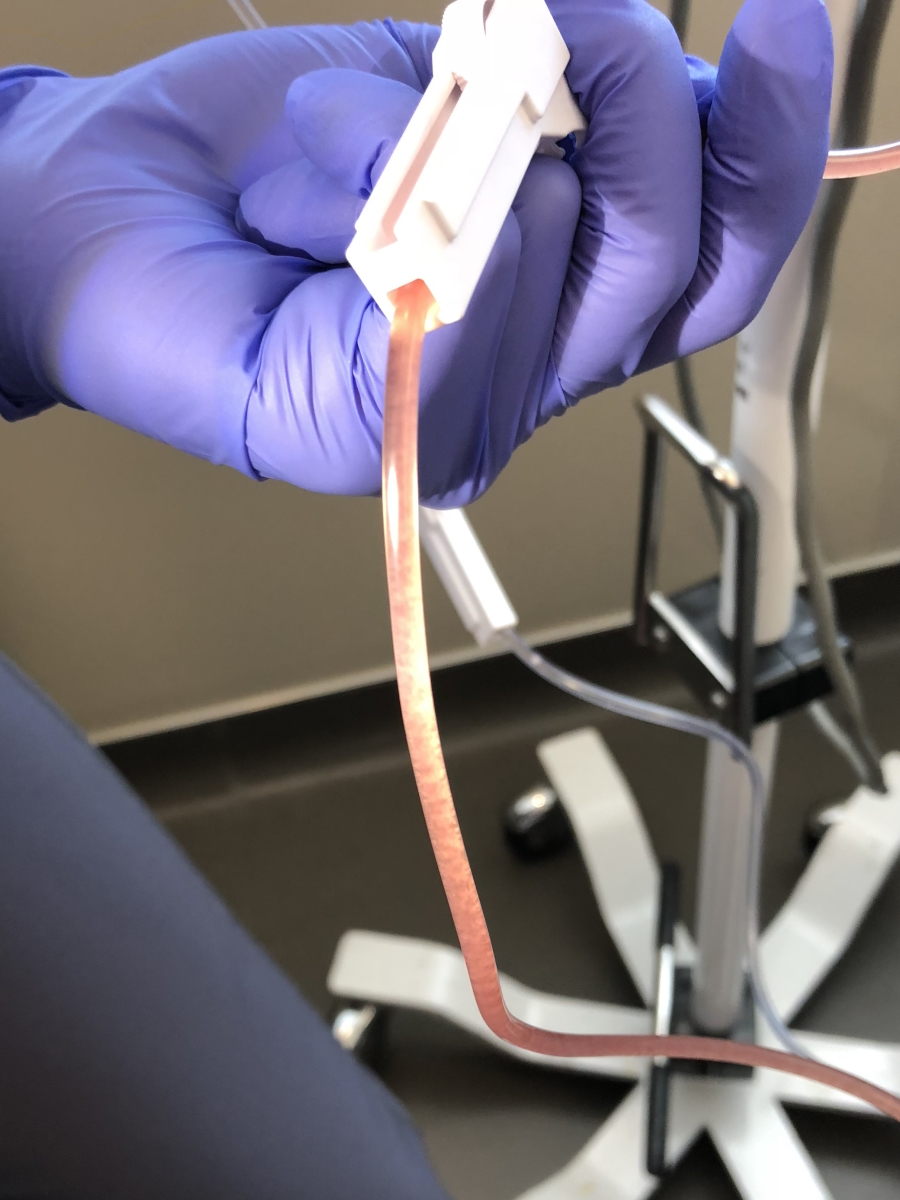
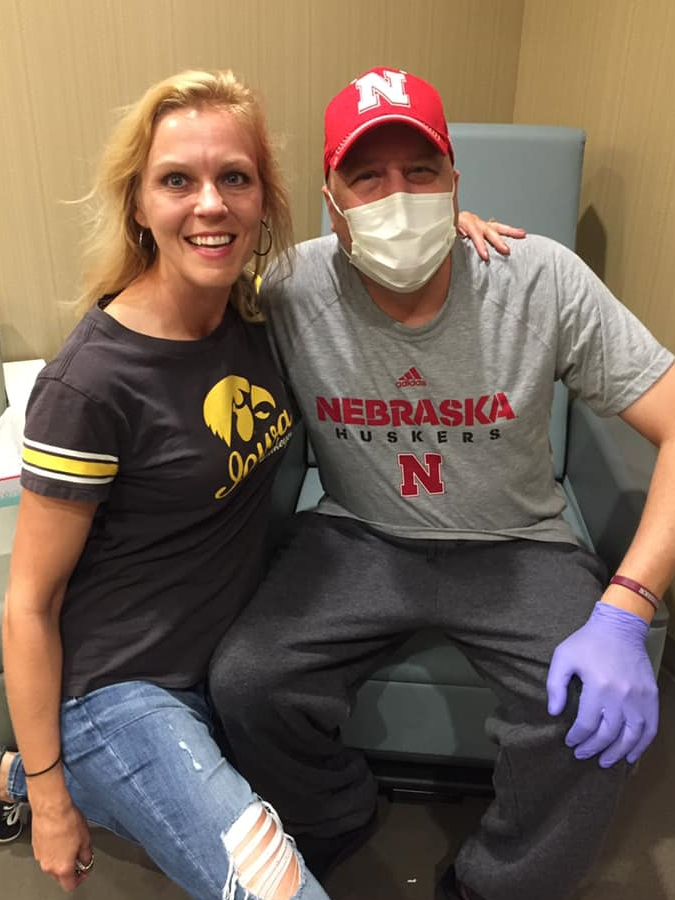
Side effects of the stem cell transplant
They told us ahead of time, “You’ll smell cream corn.” It’s the weirdest thing. Everything smells like cream corn. Even weeks later, once in a while, it would smell like cream corn.
Within 24 hours, I got really sick. I was in really rough shape. I got really sick, couldn’t eat anything, couldn’t hold anything down, and couldn’t get out of bed. As weak as weak can be. They tried everything to make you not as sick.
They would say, “Go walk. Walk all you can walk.” A lap around that floor and I’m practically being carried by Melissa by the time we get back to the room because I was so weak.
They were discussing putting a feeding tube in. Finally, they said, “There’s one more thing we can try. It’s called Marinol, a synthetic THC.” They gave me that.
[After an] hour [or] two, I was on the upswing. It worked so fast and so effectively that by the next day, I was over the sickness. I was able to keep things down finally.
I said, “I have to do this again. I’m going to tell him to start with that.”
Probably the second or third day, all the hair started coming out. I got a buzz cut going in. I should’ve had it all shaved though because, with the buzz cut, all I was getting was a bed full of tiny little hairs. Your hair falls out everywhere. My entire body was bald as a baby’s butt. It was crazy.
Towards the end, I’m eating and feeling better. I’m still the weakest I’ve ever felt in my life but better. [My] vitals are good and [my] white blood count is starting to regenerate slowly to where they felt like they could release me. God bless everybody at the Buffett Cancer Center. They’re unbelievable.
They let us out and we had to stay close. They want you to stay close for five days afterward to keep an eye on you. I had to go in [on] each of those days. We stayed at the Hope Lodge in Omaha, an incredible facility. They’re amazing. We were there for five days then they let us go home. Then a little while longer of laying on the couch and not doing a whole lot.
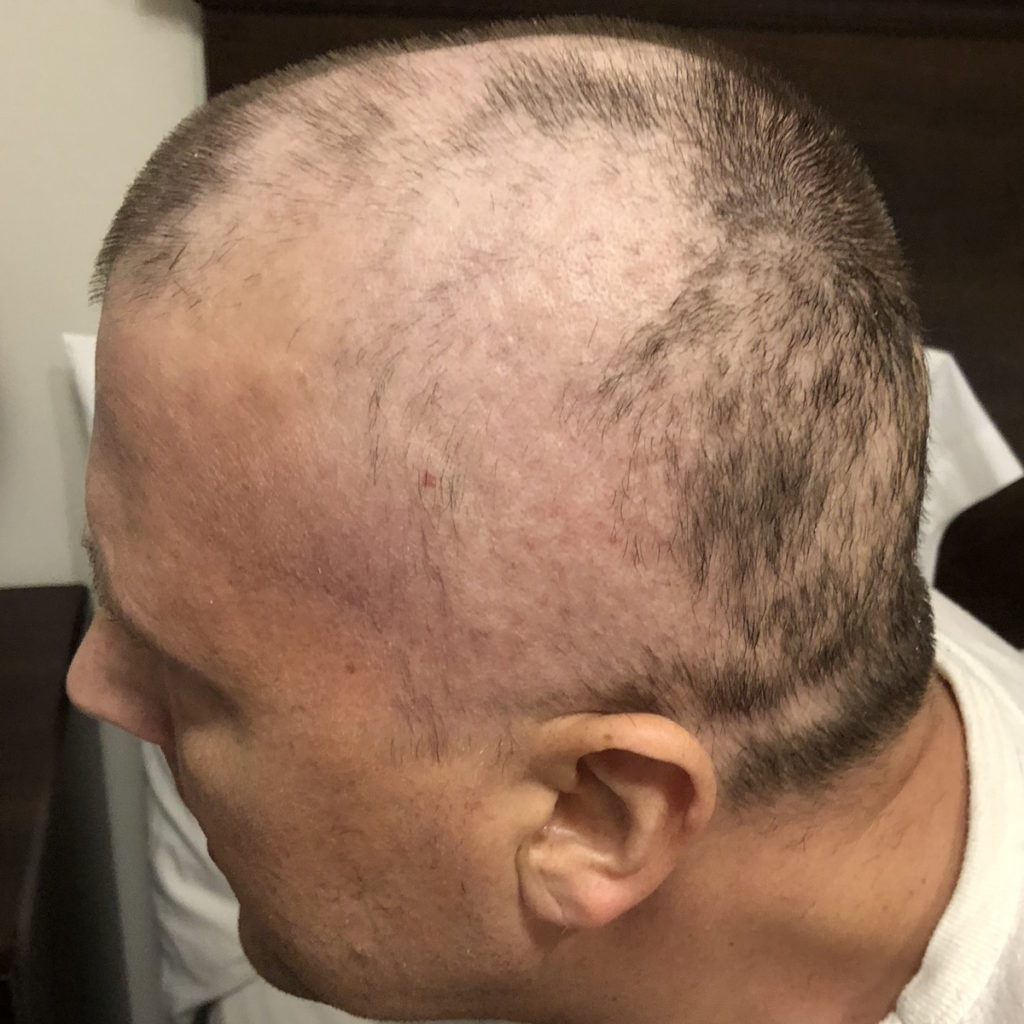
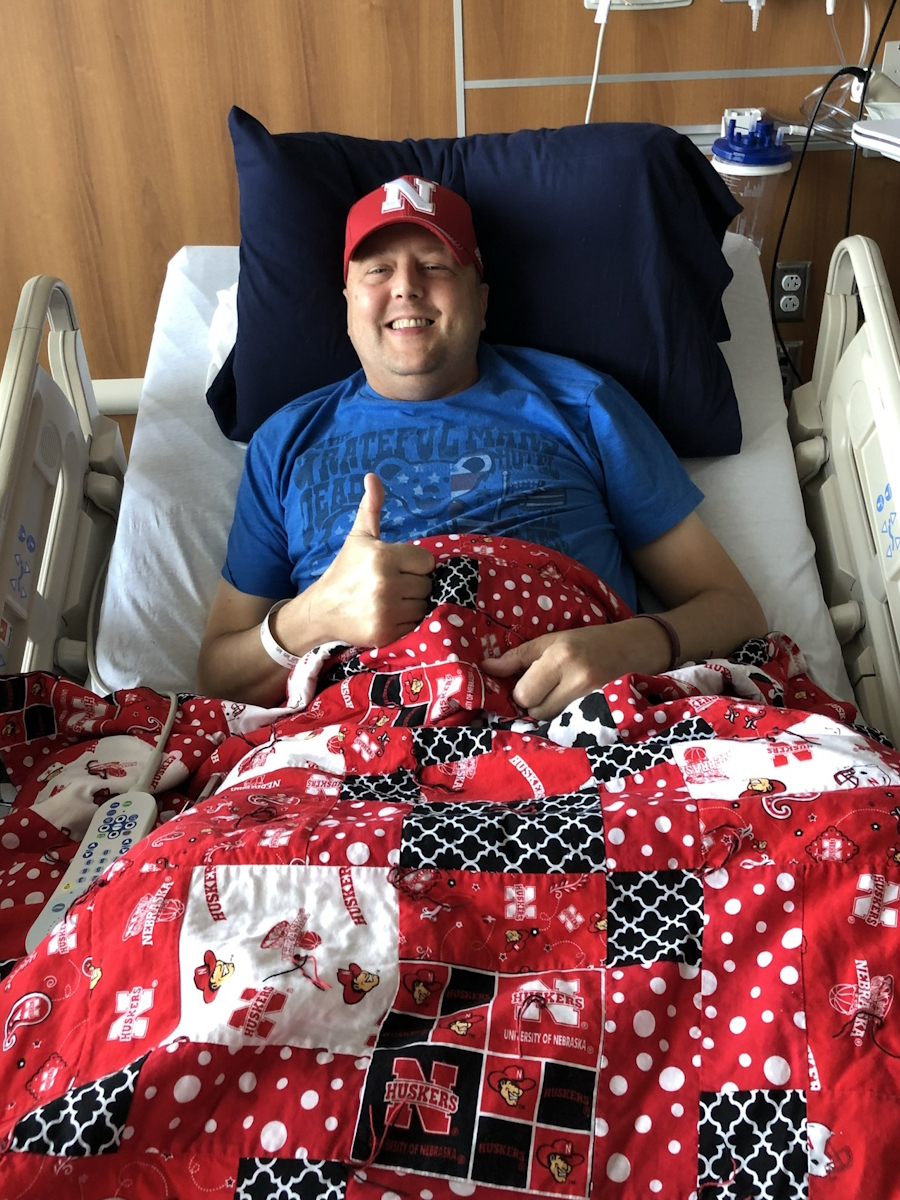
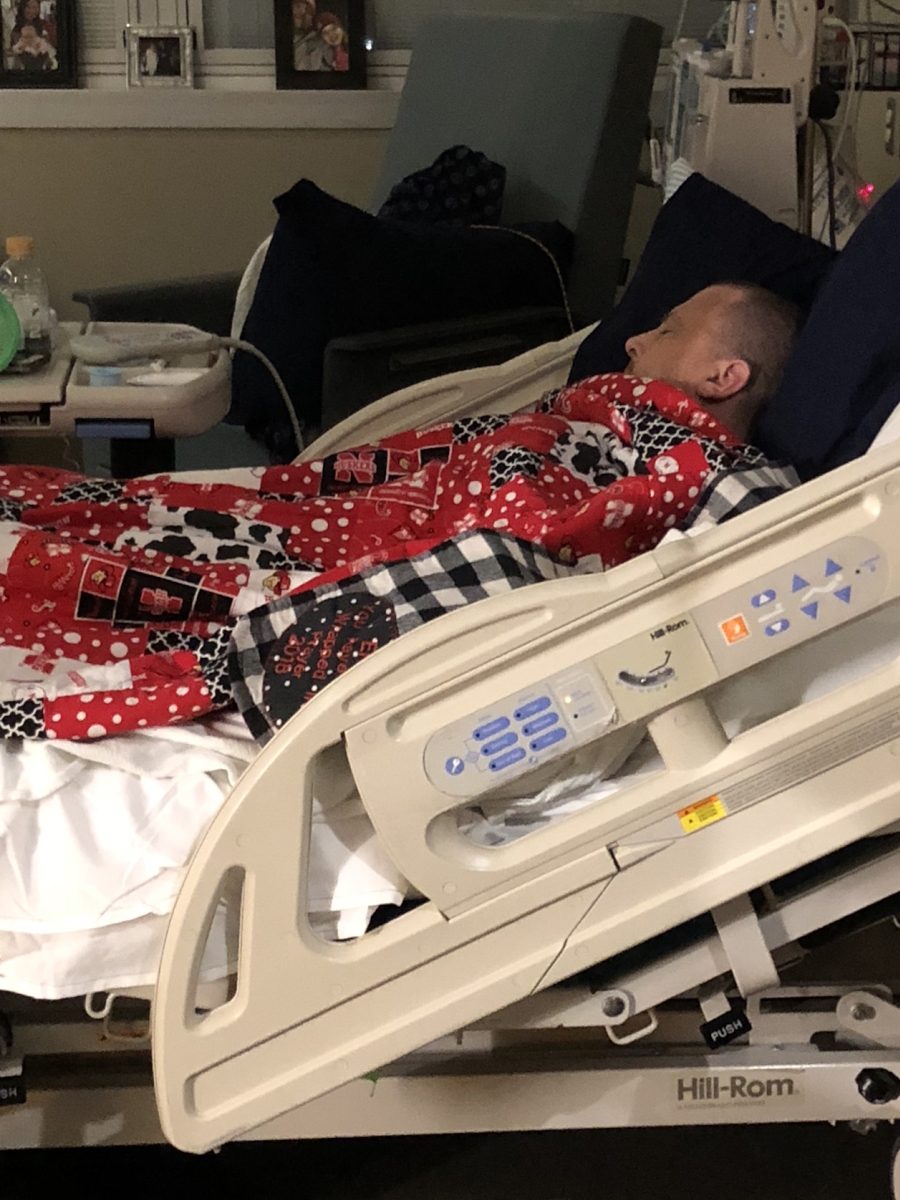
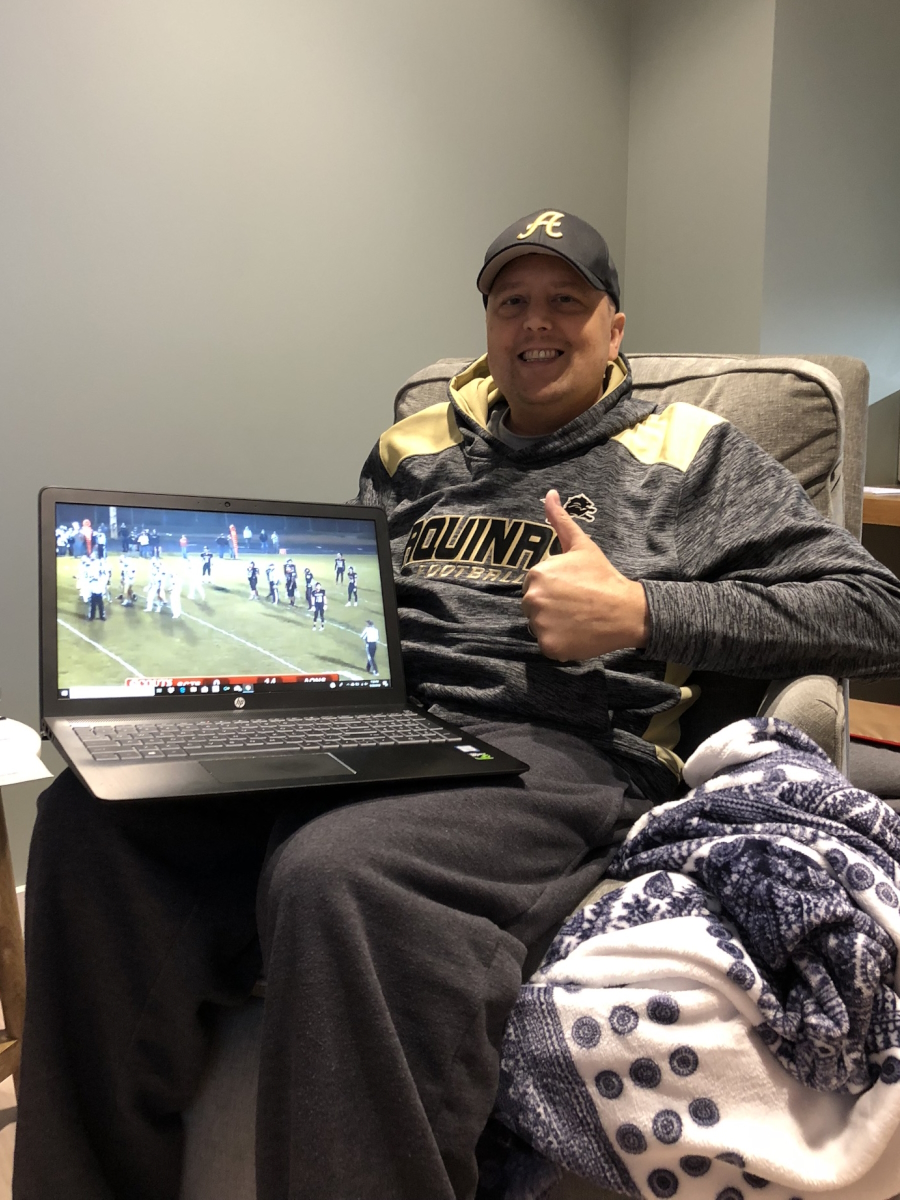
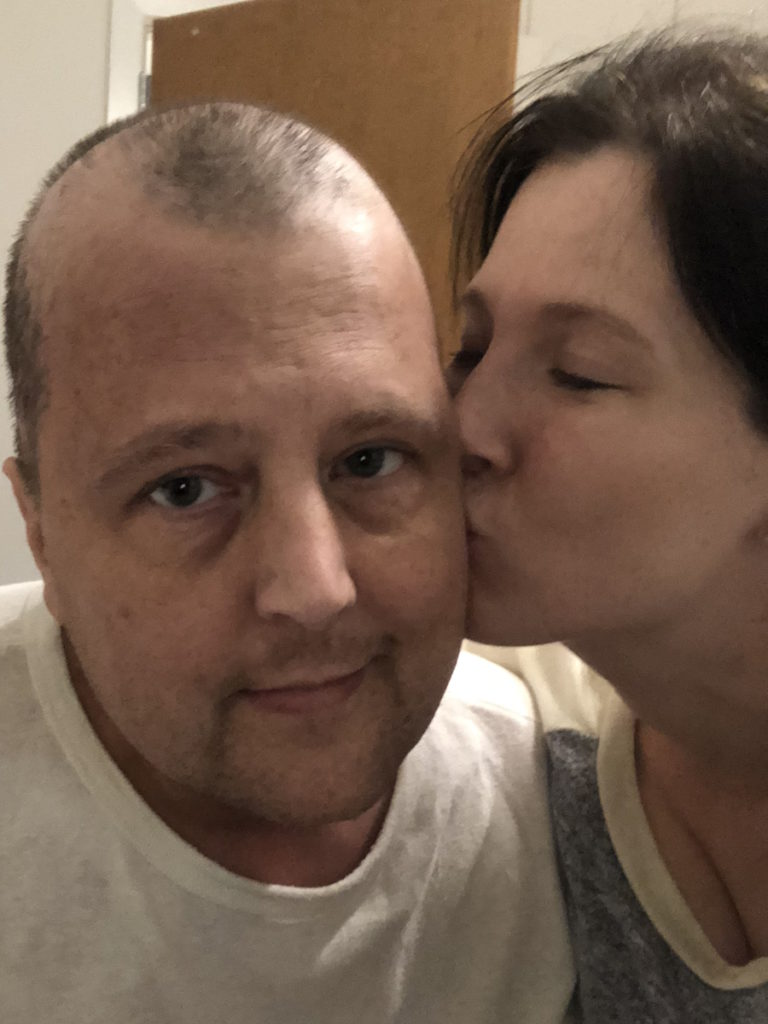
My wife was working through all this and, God bless her, she’d drive to Omaha after work every day and stay with me. Sometimes she’d stay the night. Otherwise, she’d drive back and come back the next day. She was with me every single step of the way. We had a few other visitors, too, which was nice.
About the third day I was home, I’m bored to death because I’d been alone for three weeks in a hospital and then another five days in the Hope Lodge. I’m not talking to any human beings so I went to work.
I got dressed, put a mask on, got in the car, [and] went to work. This is pre-pandemic, but they said, “You have no immune system right now.” I walked in the back door. A couple of my staff were right there and they looked like they’d seen a ghost. I must have looked terrible.
I only stayed for an hour, said hi to people, caught up with what I’d been missing, and went home. I didn’t tell my wife ’til way, way, way, way later because I knew I was going to be in big trouble. I did that a couple more times in the next two weeks.
About the third week, I decided I’m going to go back to work. It was a few hours at first and then the workdays got a little longer as time went on.
Finding out if the stem cell transplant worked
Come December, we had a 100-day follow-up following the transplant. That’s when you find out: did all this trouble work? I’d never been so anxious and scared.
We went in and Melissa and I were sitting there for what felt like an eternity. It’s December 20th, five days before Christmas, so this is going to make or break Christmas.
Jennifer came in and said, “Listen. It’s good news.” Then Dr. Baljević came in and went over it. It was pretty much [in] complete remission. There was a little bit of something in my urine they were seeing. He said, “A year from now, we’re not going to see that. You’re basically 98% and you’re going to be 100%.”
We left that room, stopped in the hall, and my wife and I kissed for the longest time. We were both crying and holding each other. It was so emotional. We went out [and] had a celebration
It was a magical Christmas for everybody. Everybody had been stressed for a year. A miracle happened. It was incredible.
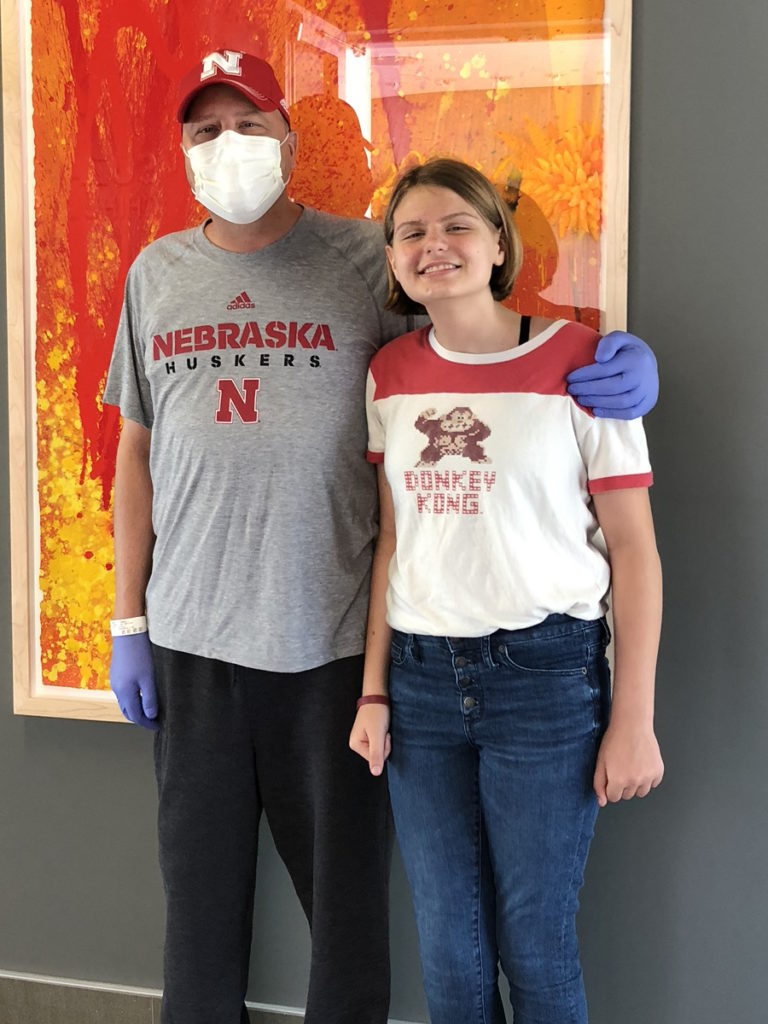
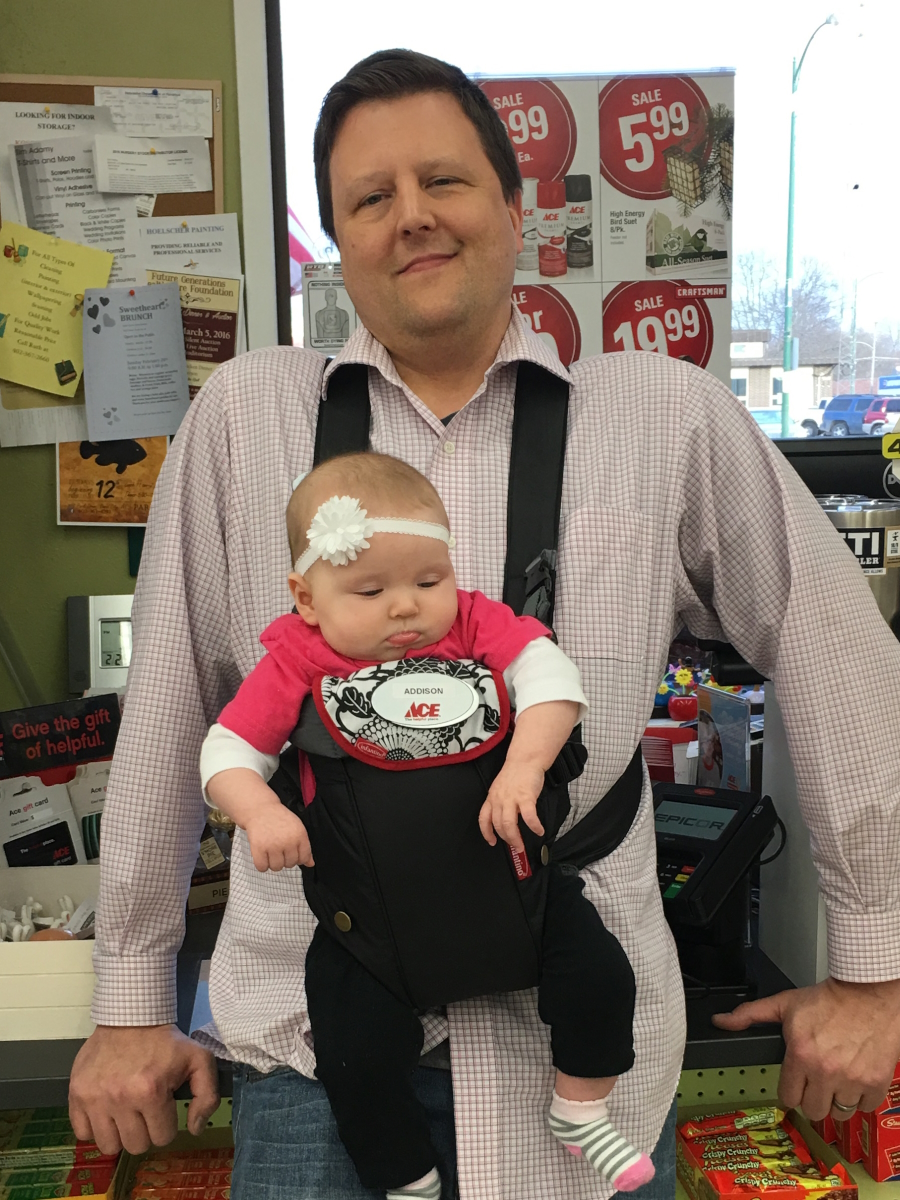
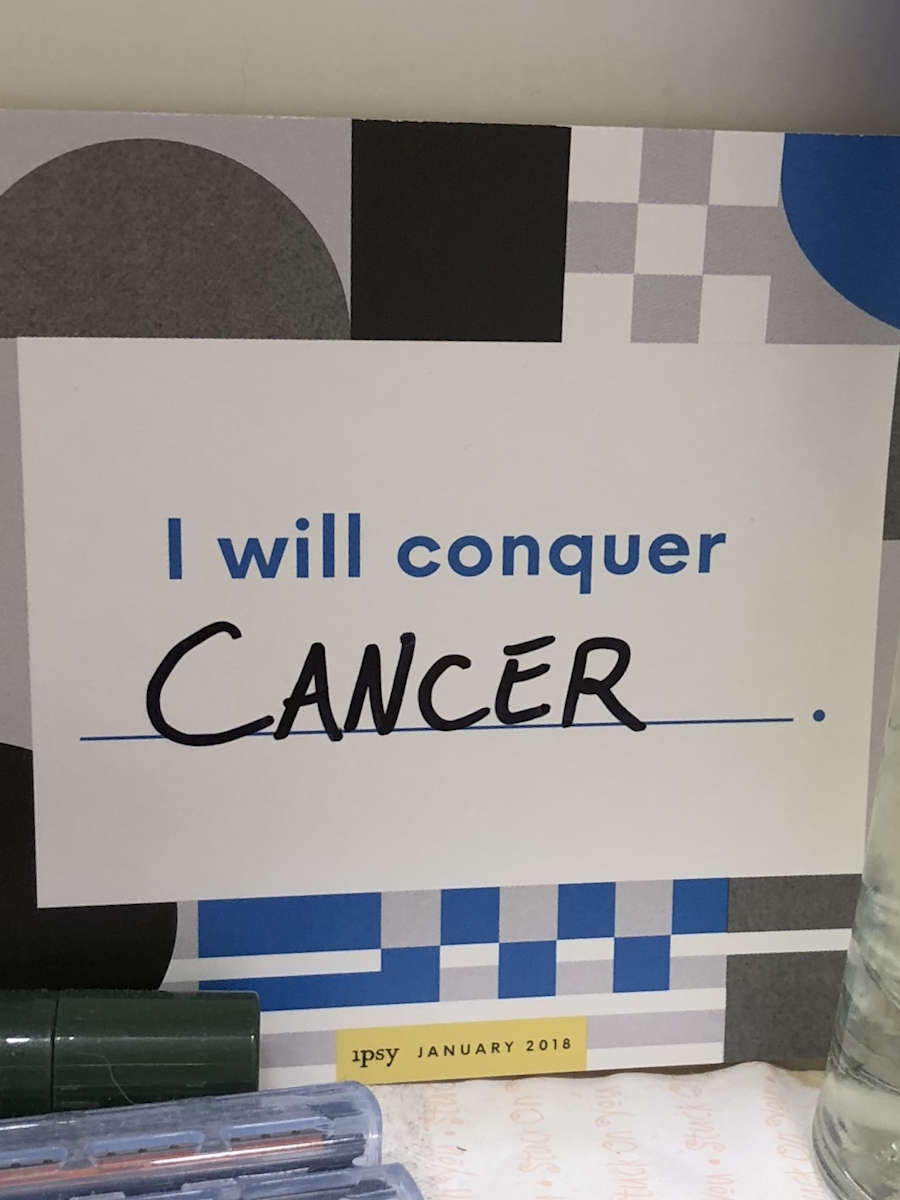
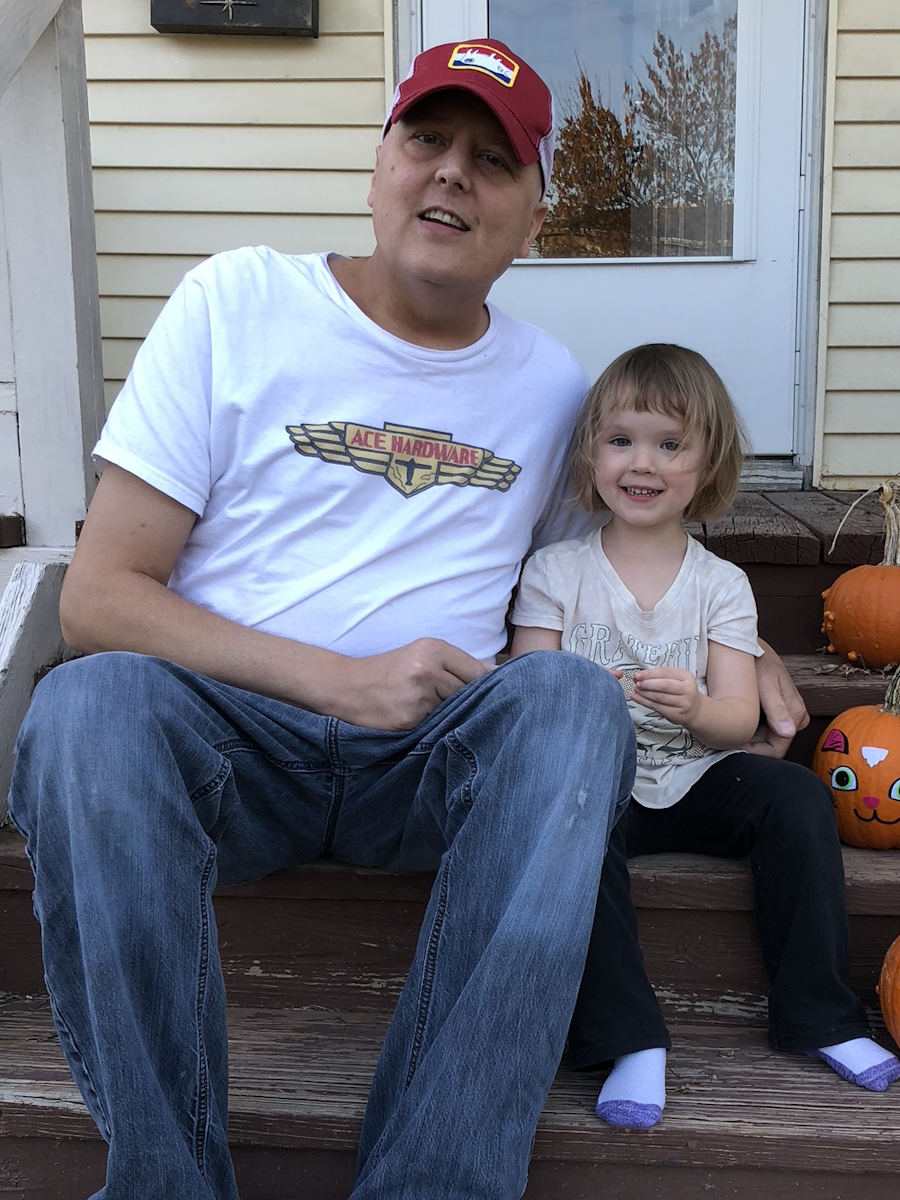
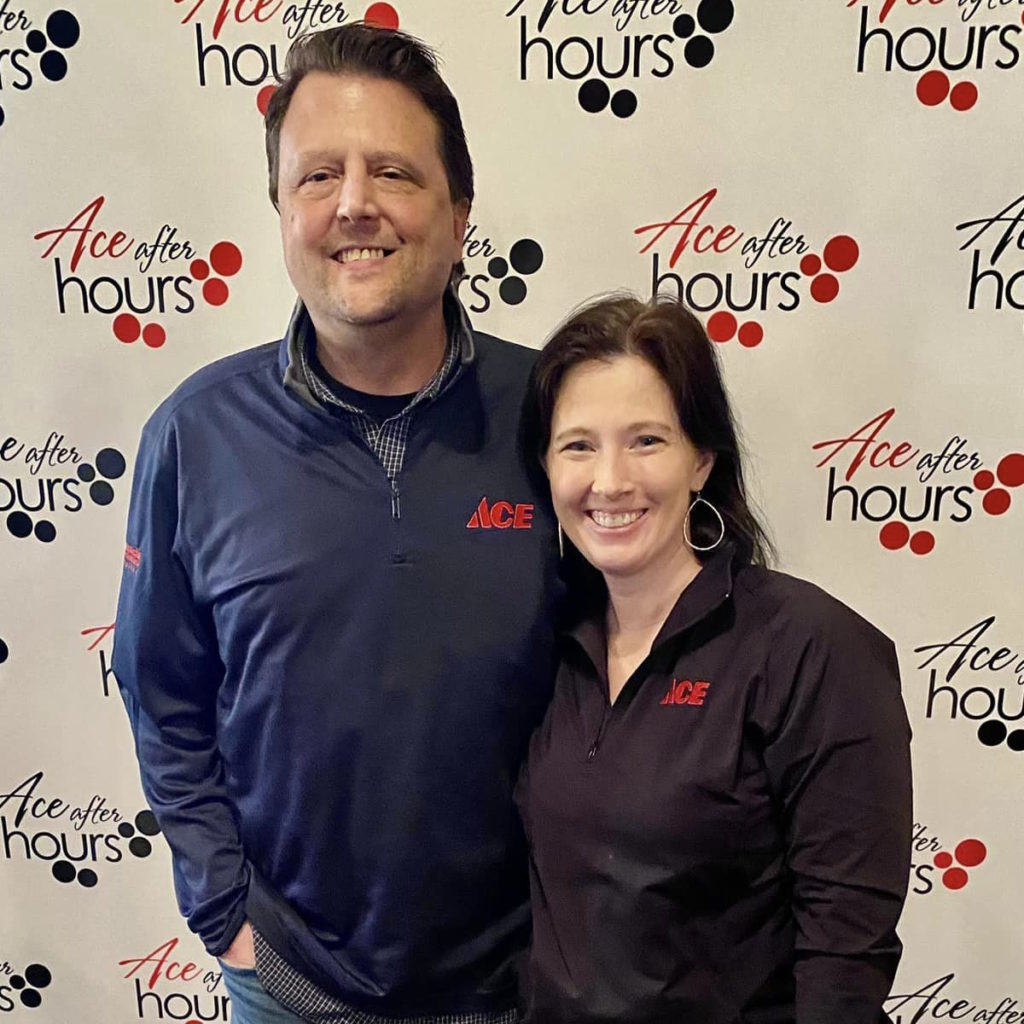
Getting full support from work
I have the best employer in the world.
When I first got sick, I get a phone call from my boss. I’m already thinking, What am I going to do? I got cancer. I’m going to miss all this work. I’m screwed. We need the money. I’m gonna have all these bills. My boss says, “How are you doing?” I said, “Oh, my back, I’m in ICU, I’m dying.”
He said, “Listen, I don’t want you to worry about money. Whatever time you have to miss, whatever goes on, we’re going to pay your full salary the whole time.” I was in tears. Who does that? He’s a man of his word.
I missed so much work between weekly chemo, doctor’s appointments, and the stem cell transplant. Never missed a dime so I had a real desire to get back to work, honestly.
I love my work. My wife will tell you if I’m not at home, I’m here. I wanted to get back to work to show him that this was important to me and that I appreciate it. Short days got longer and longer ’til they were back to full days.
Being a different person
I feel like I’m a completely different person. If it doesn’t involve my family or work, I just don’t really care. I don’t have time for it.
We like to travel. We’ve been doing things and watching our kids grow up and that’s what’s important to me now. My brain is so far less distracted than it used to be.
Our marriage got so much stronger through all this. You get married and you say, “In sickness and in health,” and you don’t know what that means until something like this happens.
My life is great now. My wife is incredible. My kids are incredible. My work is incredible. I have nothing to complain about. I can, but it’s so good.
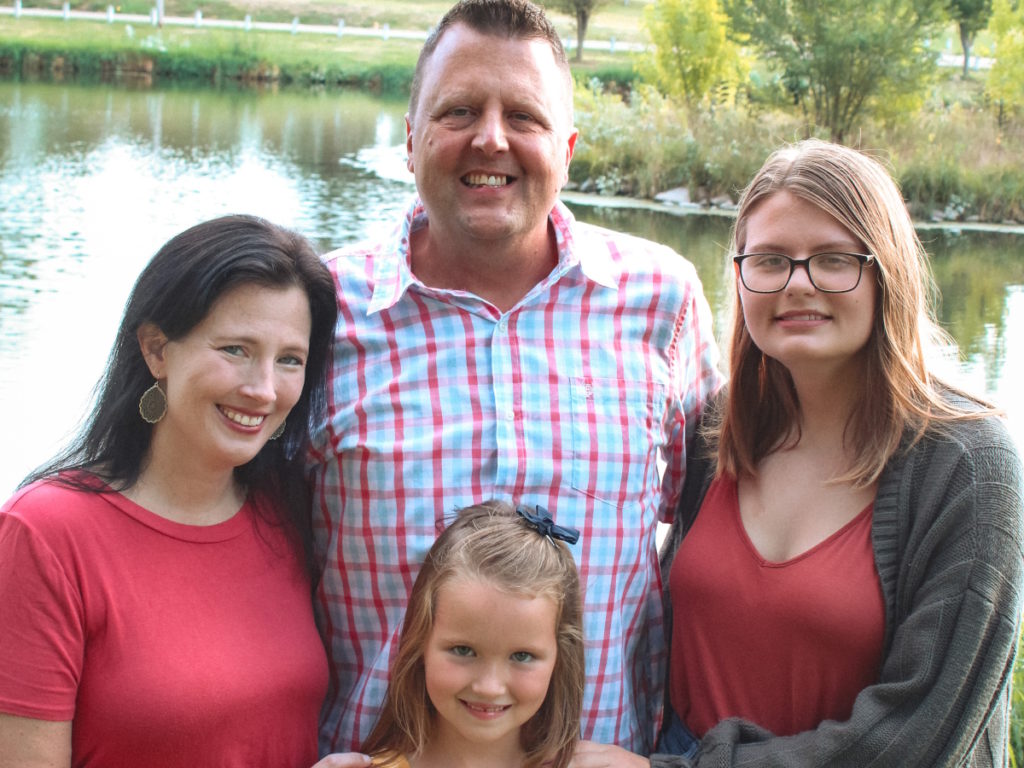
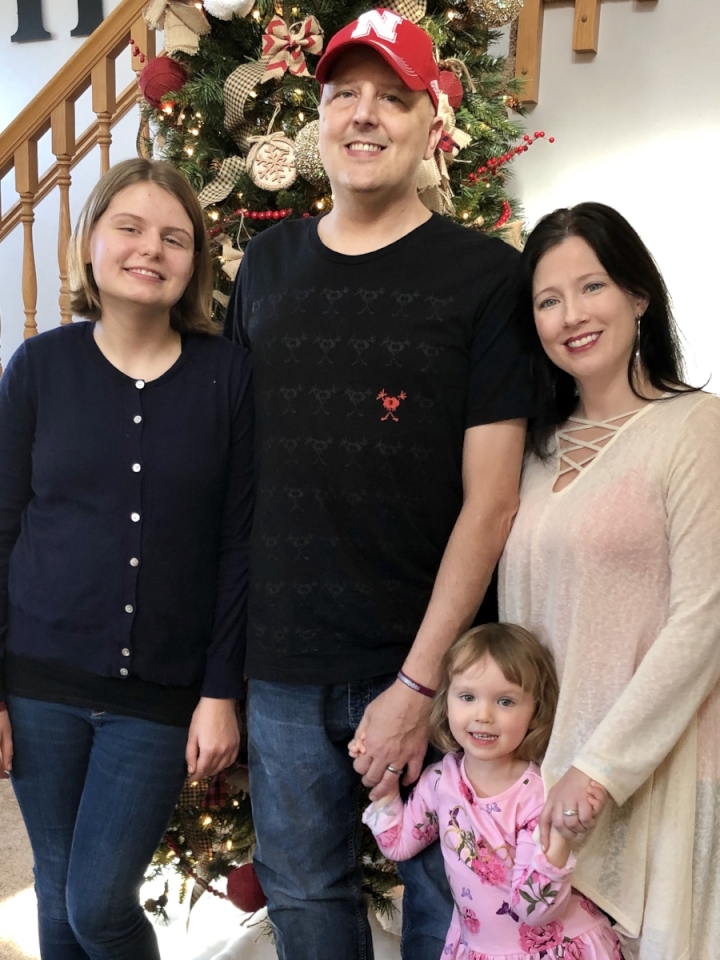
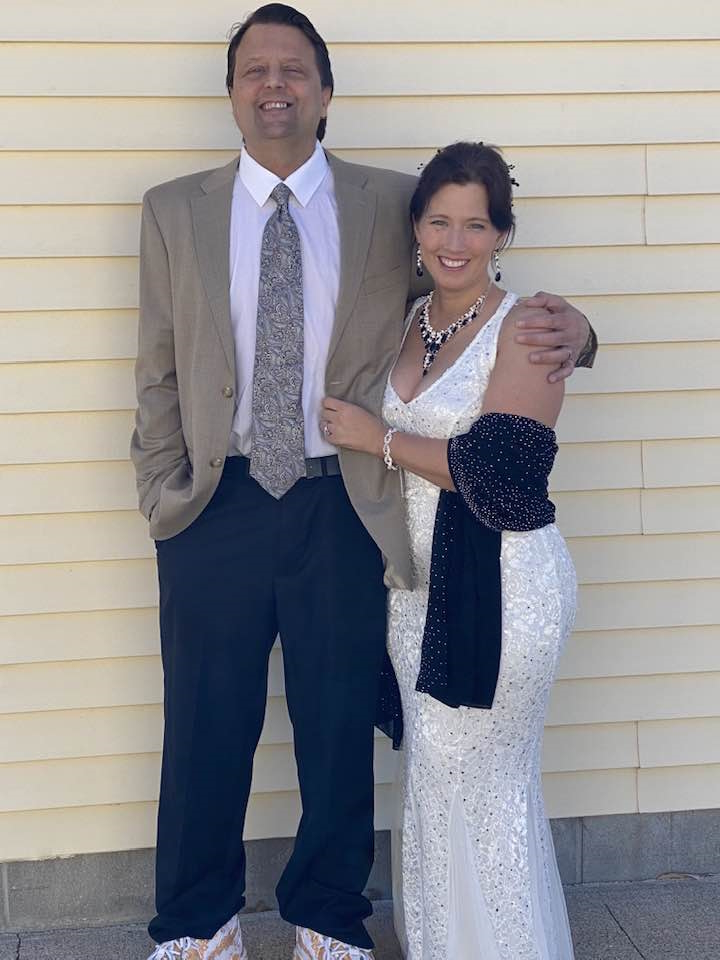
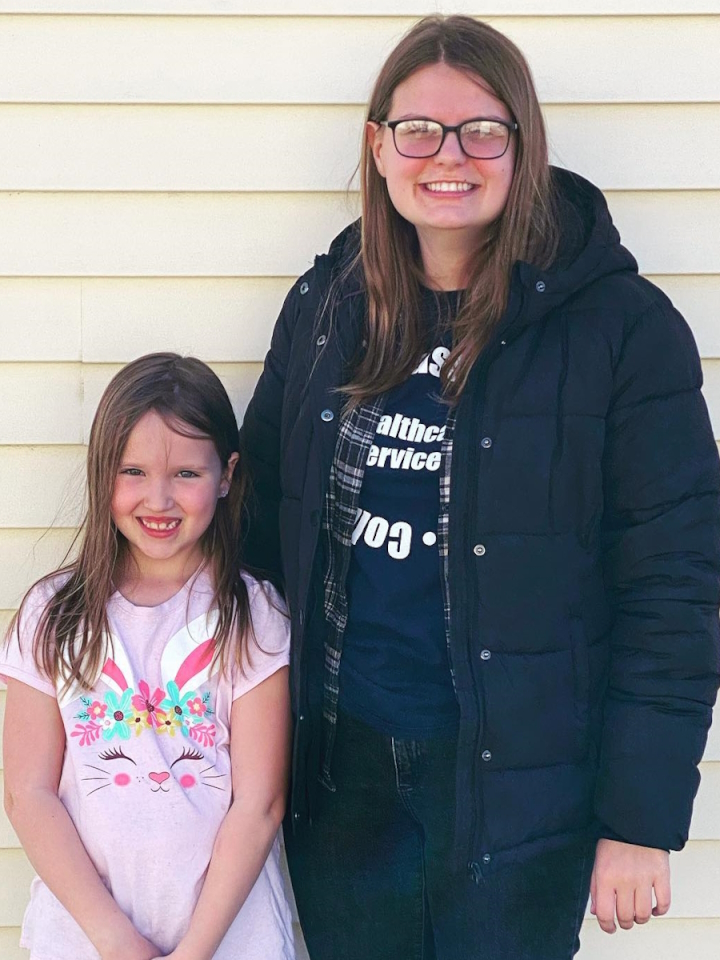
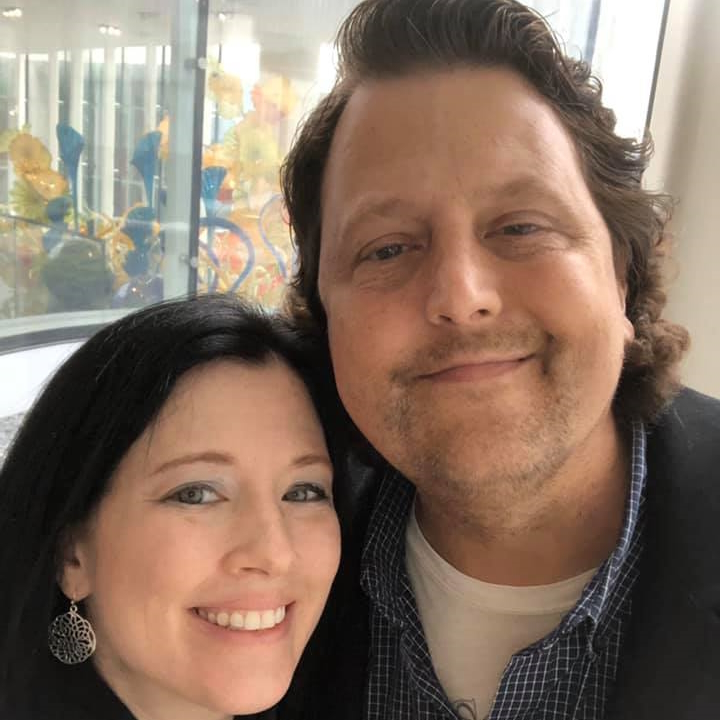
Some maturity happened through this. You get a different sense of what’s important. You realize the things that you’re going to miss if you go, the things you’re going to leave behind. That’s all that matters to me now.
Multiple myeloma is a lifetime thing. I’m lucky. I’m four and a half years in remission. I have an [upcoming] appointment and that could be the end of it for all I know. We’re going to live while things are in remission.
My wife worked in health care, which was a blessing when I got sick. When my back broke, she dressed me, showered me, put my socks on, and put my shoes on. It humbles you when somebody has to do that stuff for you.
I can never repay everything my wife’s done for me. There just isn’t a way so I try to make our life as good as we can because she deserves it and we deserve it.
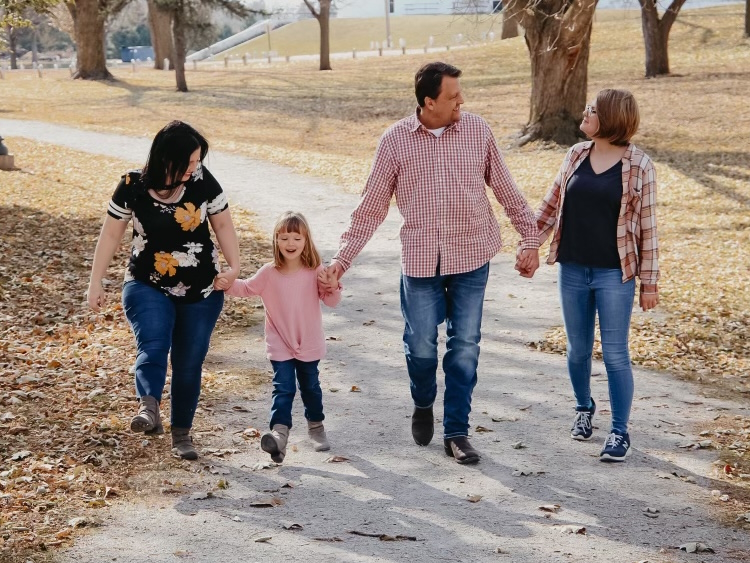

Inspired by Erin's story?
Share your story, too!
More Multiple Myeloma Stories
Clay D., Relapsed/Refractory Multiple Myeloma
Symptoms: Persistent kidney issues, nausea
Treatments: Chemotherapy (CyBorD, KRd, VDPace), radiation, stem cell transplant (autologous & allogeneic), targeted therapy (daratumumab), immunotherapy (elotuzumab)
...
Melissa V., Multiple Myeloma, Stage 3
Symptom: Frequent infections
Treatments: IVF treatment & chemotherapy (RVD) for 7 rounds
...
Elise D., Refractory Multiple Myeloma
Symptoms: Lower back pain, fractured sacrum
Treatments: CyBorD, Clinical trial of Xpovio (selinexor)+ Kyprolis (carfilzomib) + dexamethasone
...
Marti P., Multiple Myeloma, Stage 3
Symptoms: Dizziness, confusion, fatigue, vomiting, hives
Treatments: Chemotherapy (bortezomib & velcade), daratumumab/Darzalex, lenalidomide, revlimid, & stem cell transplant
...
Ray H., Multiple Myeloma, Stage 3
Symptoms: Hemorrhoids, low red blood cell count
Treatments: Immunotherapy, chemotherapy, stem cell transplant
...
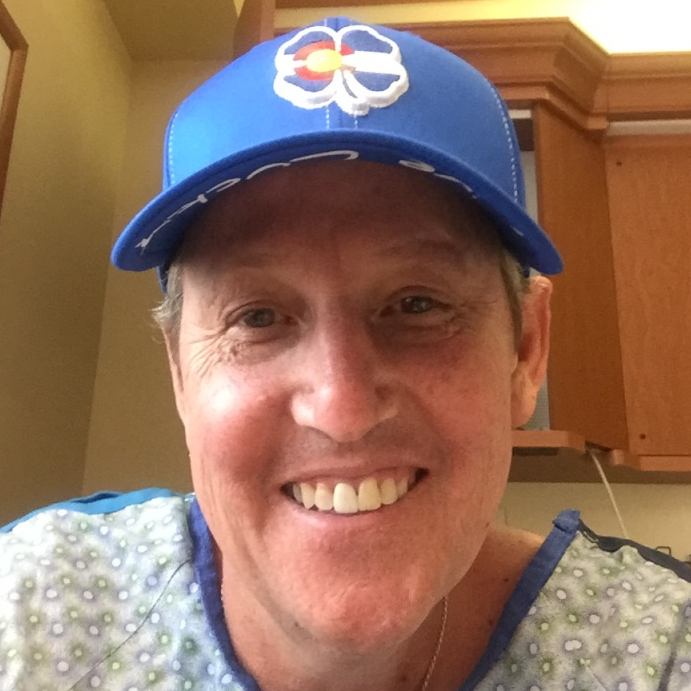
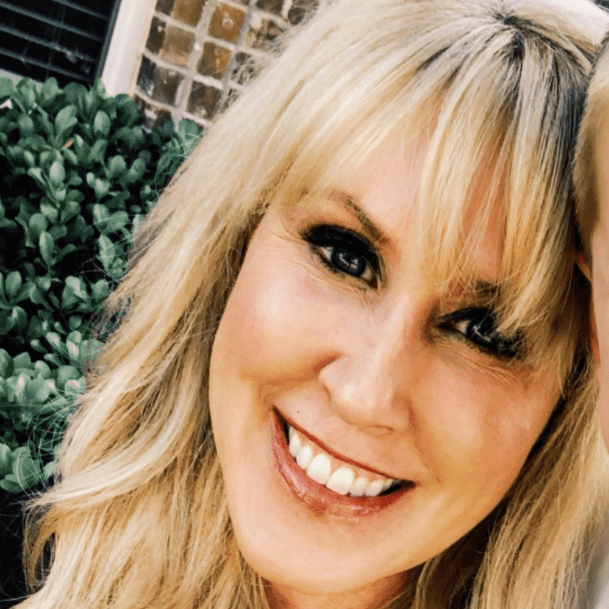
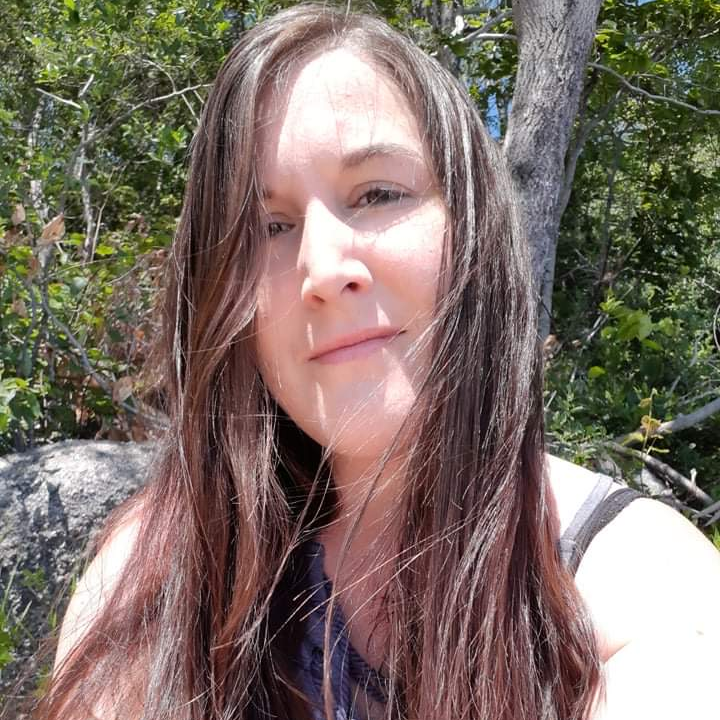
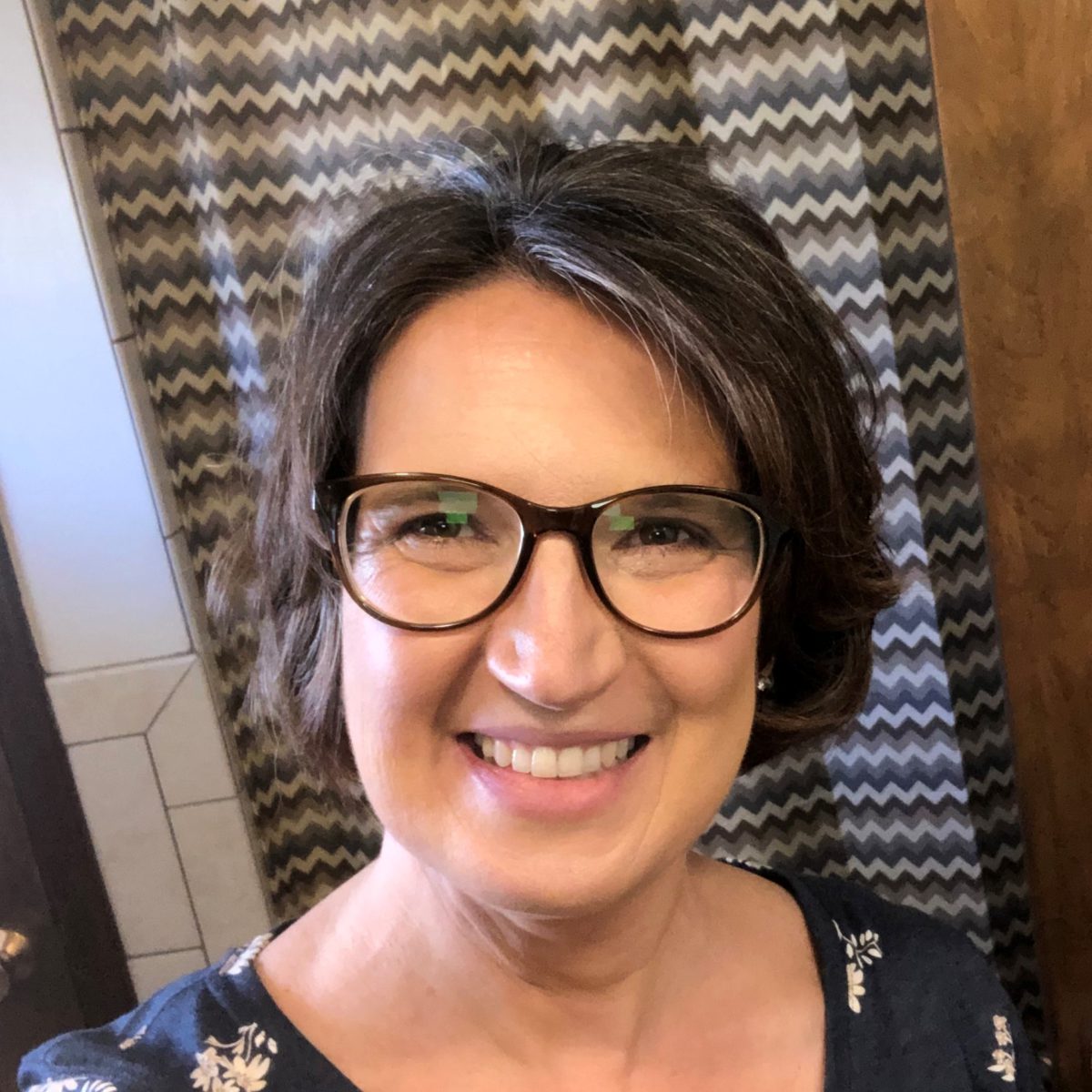
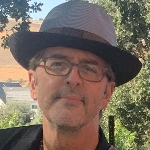
One reply on “Erin’s Multiple Myeloma Story”
How did the doctors address Erin’s compression fractures? I’m going through the same experience as Erin; however, I only have (3) vertebrae’s with compression fractures and will be going through a Kyphoplasty procedure to fix the compression fractures. I just started my 1st cycle of my medical treatment, for Multiple Myeloma.